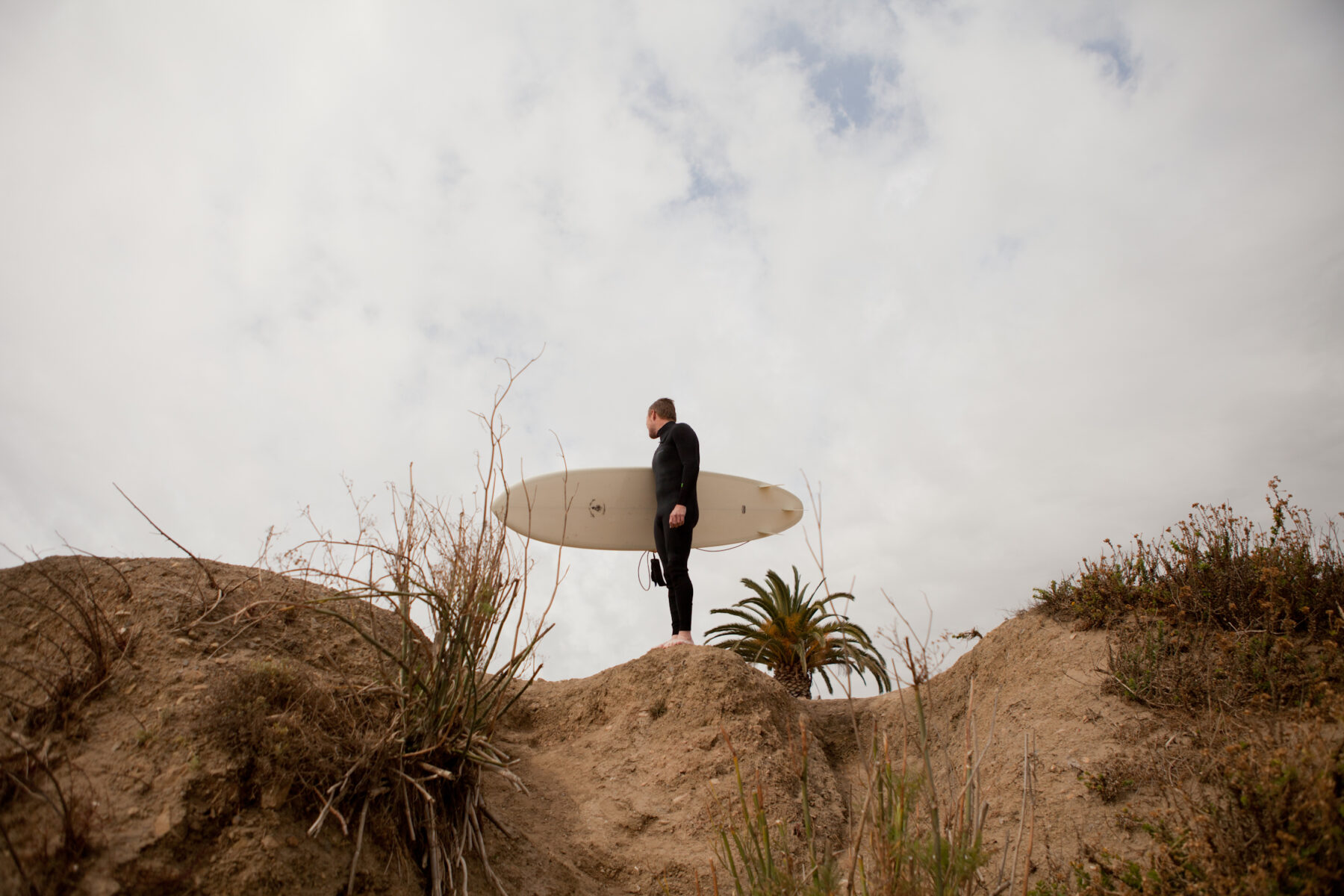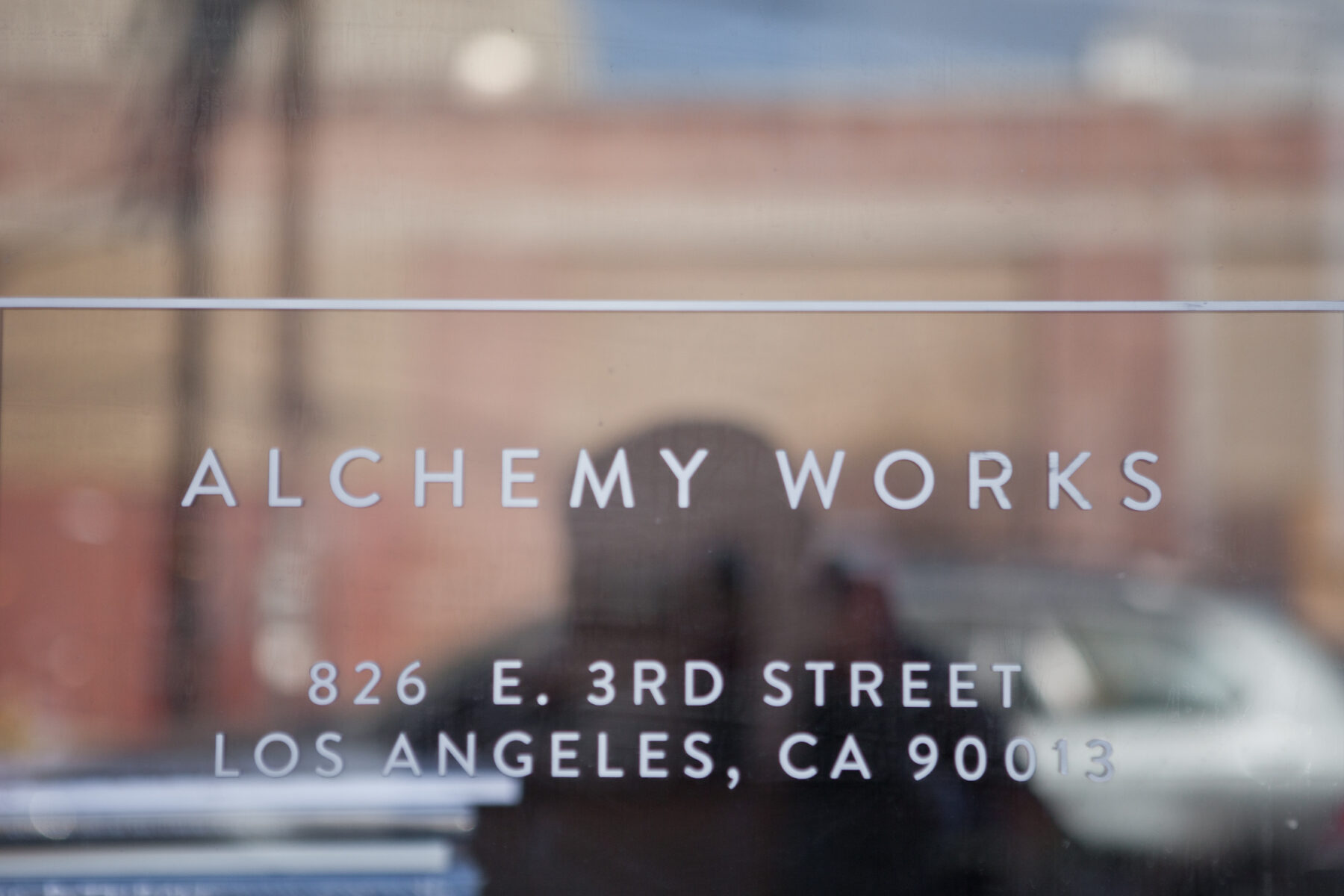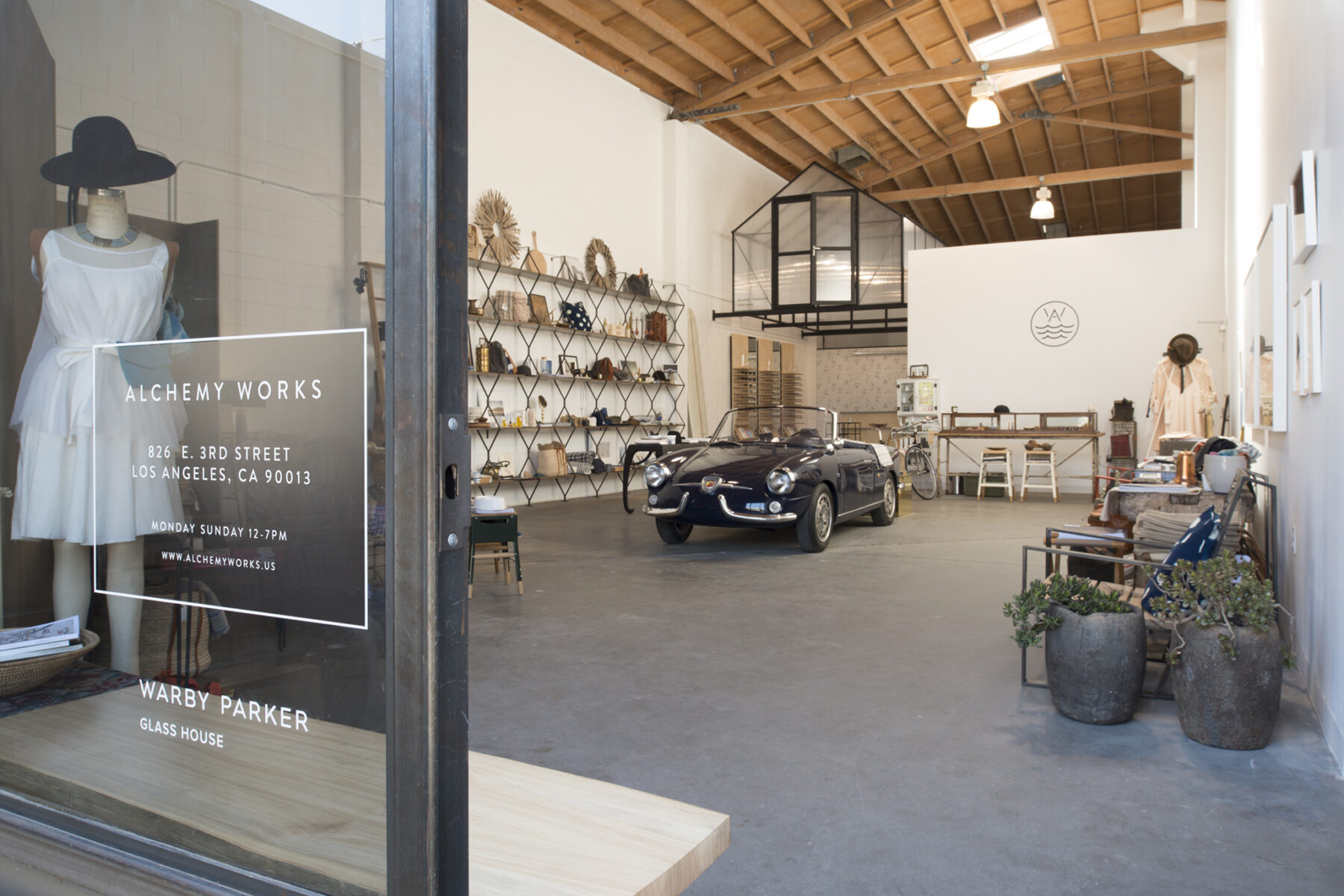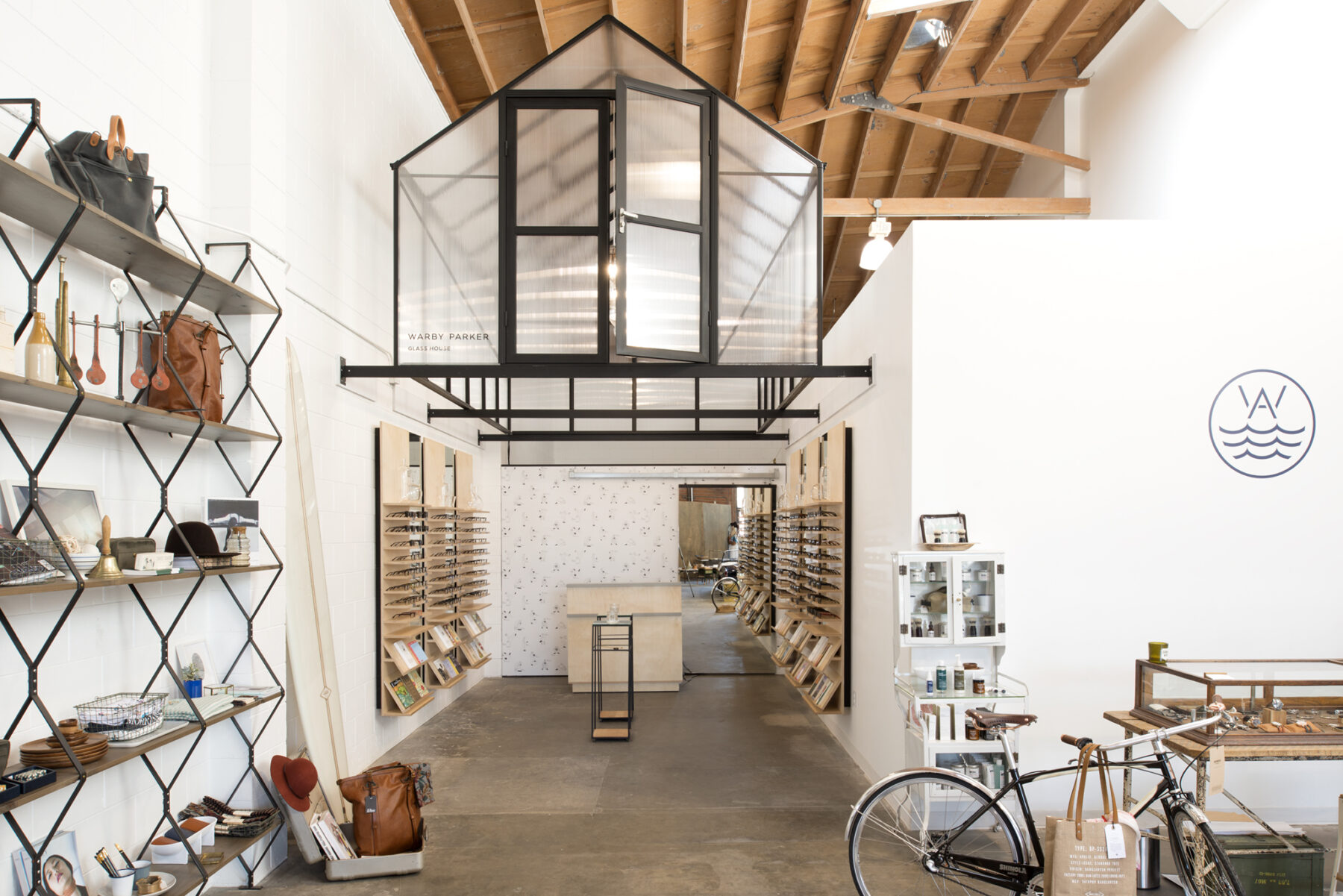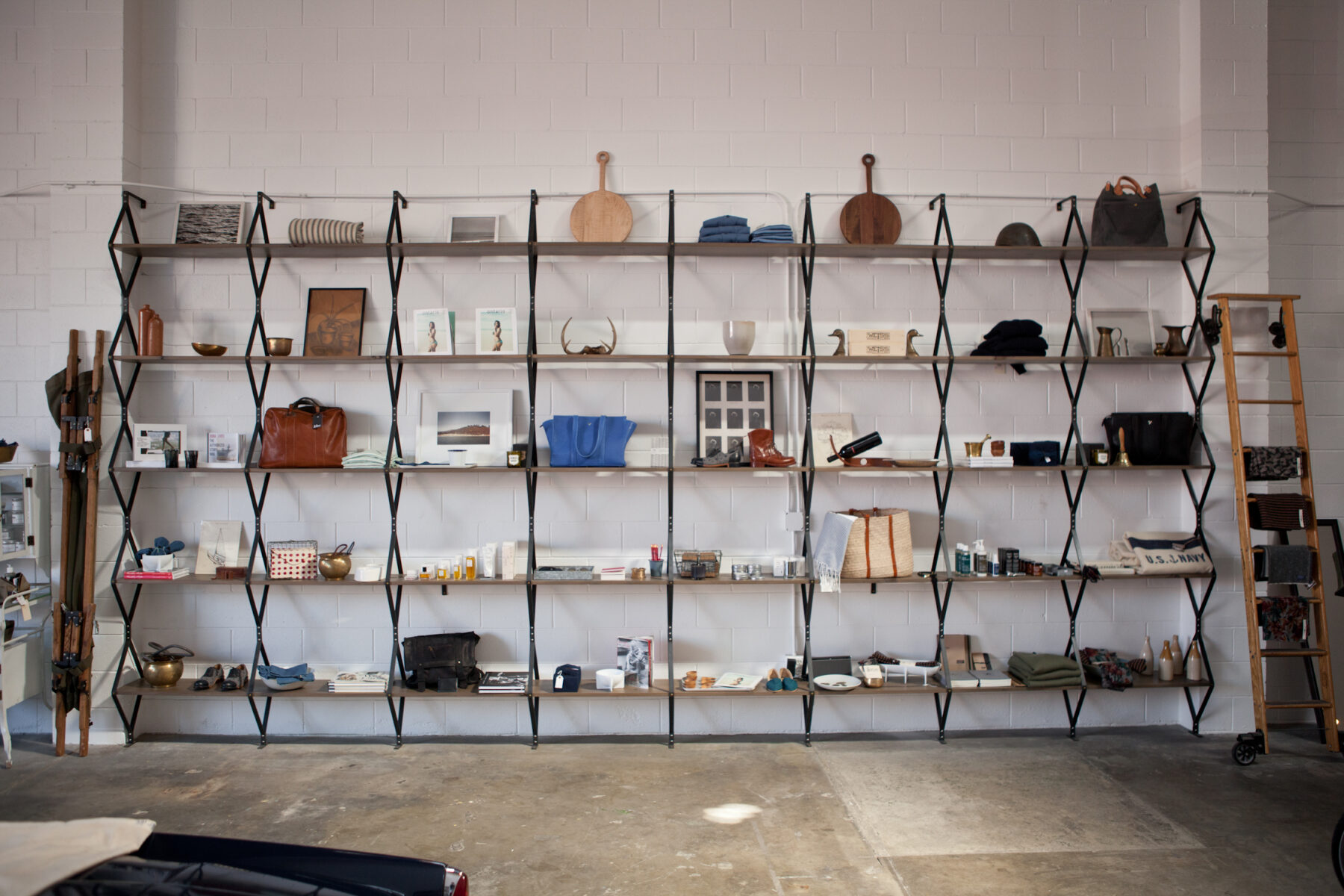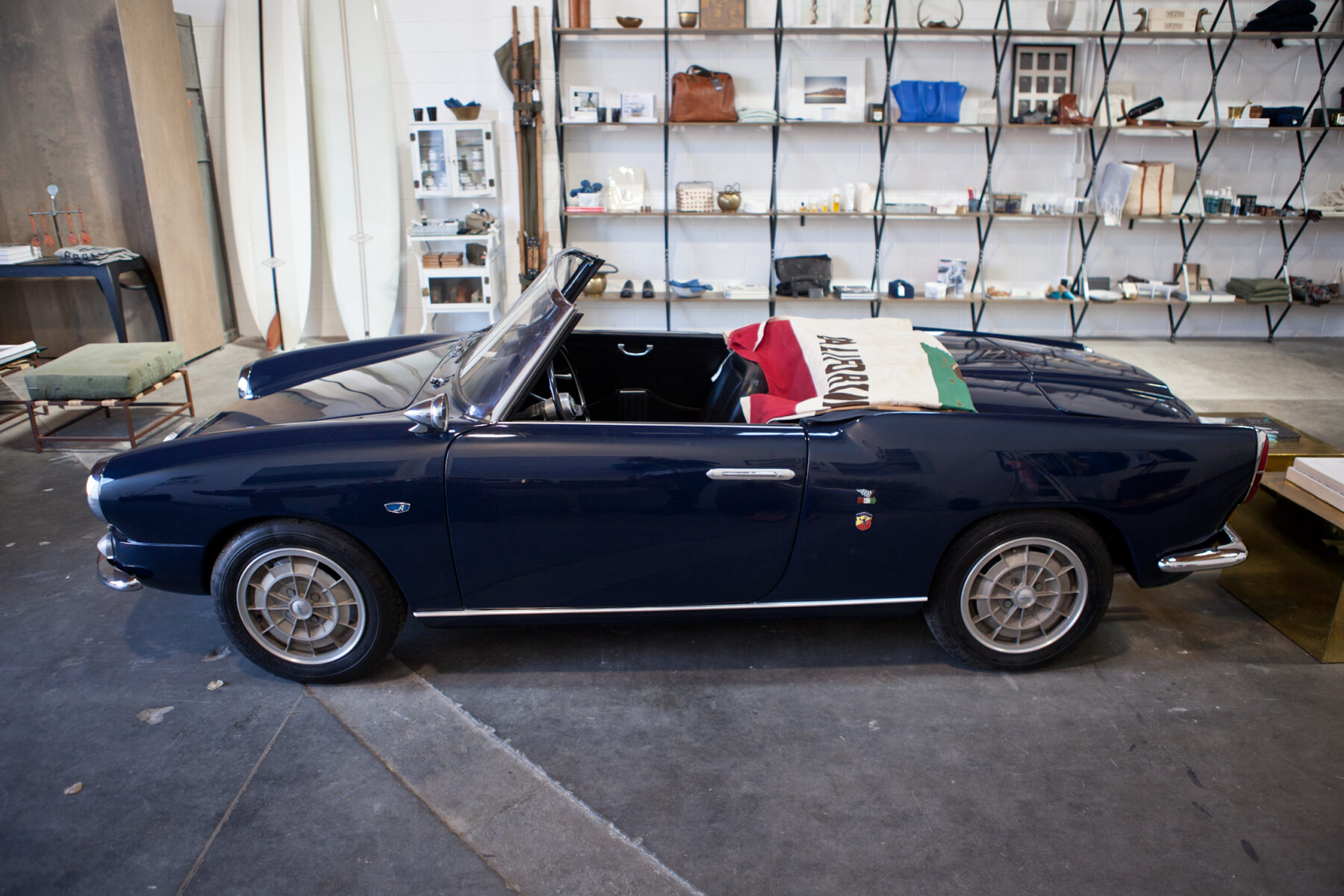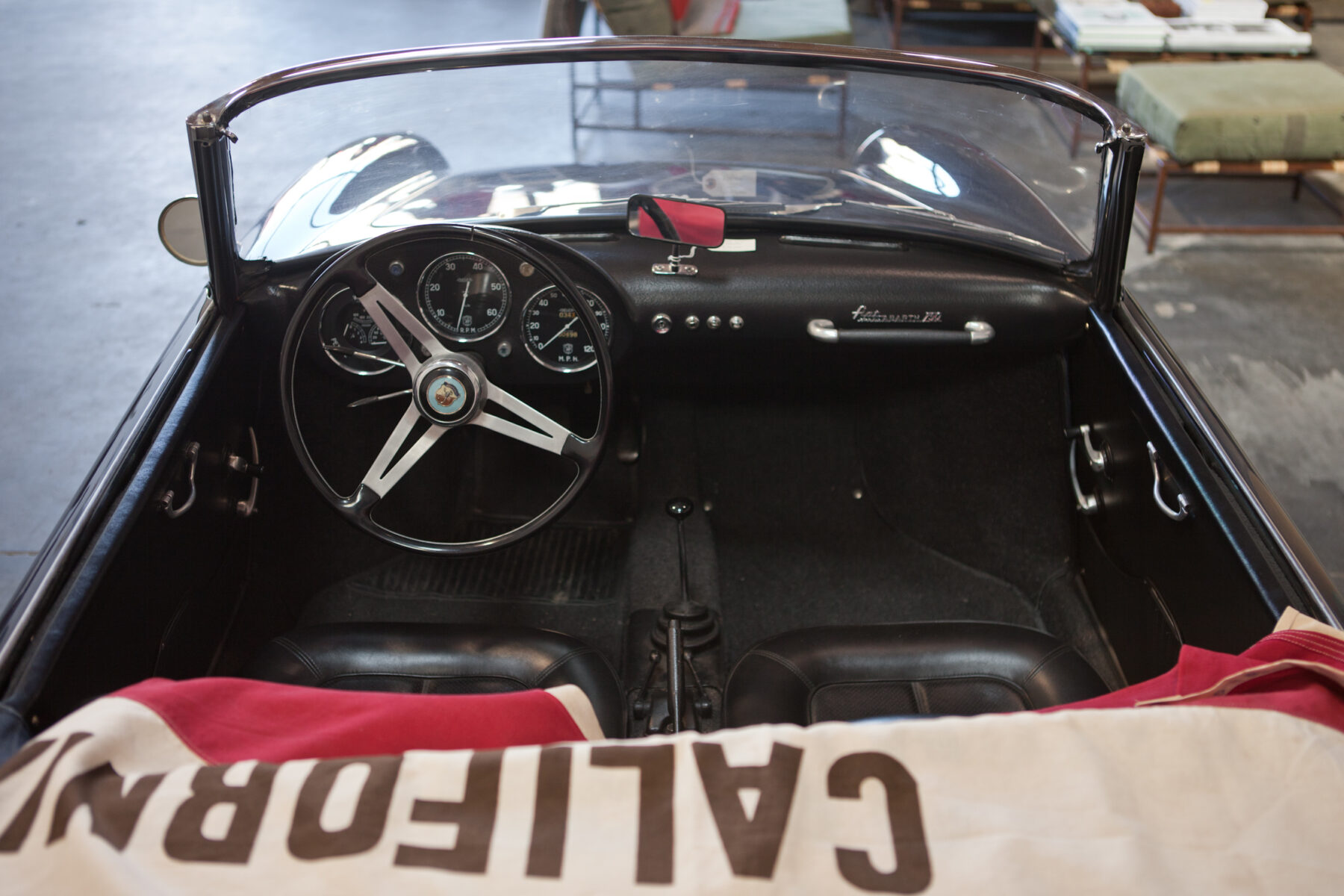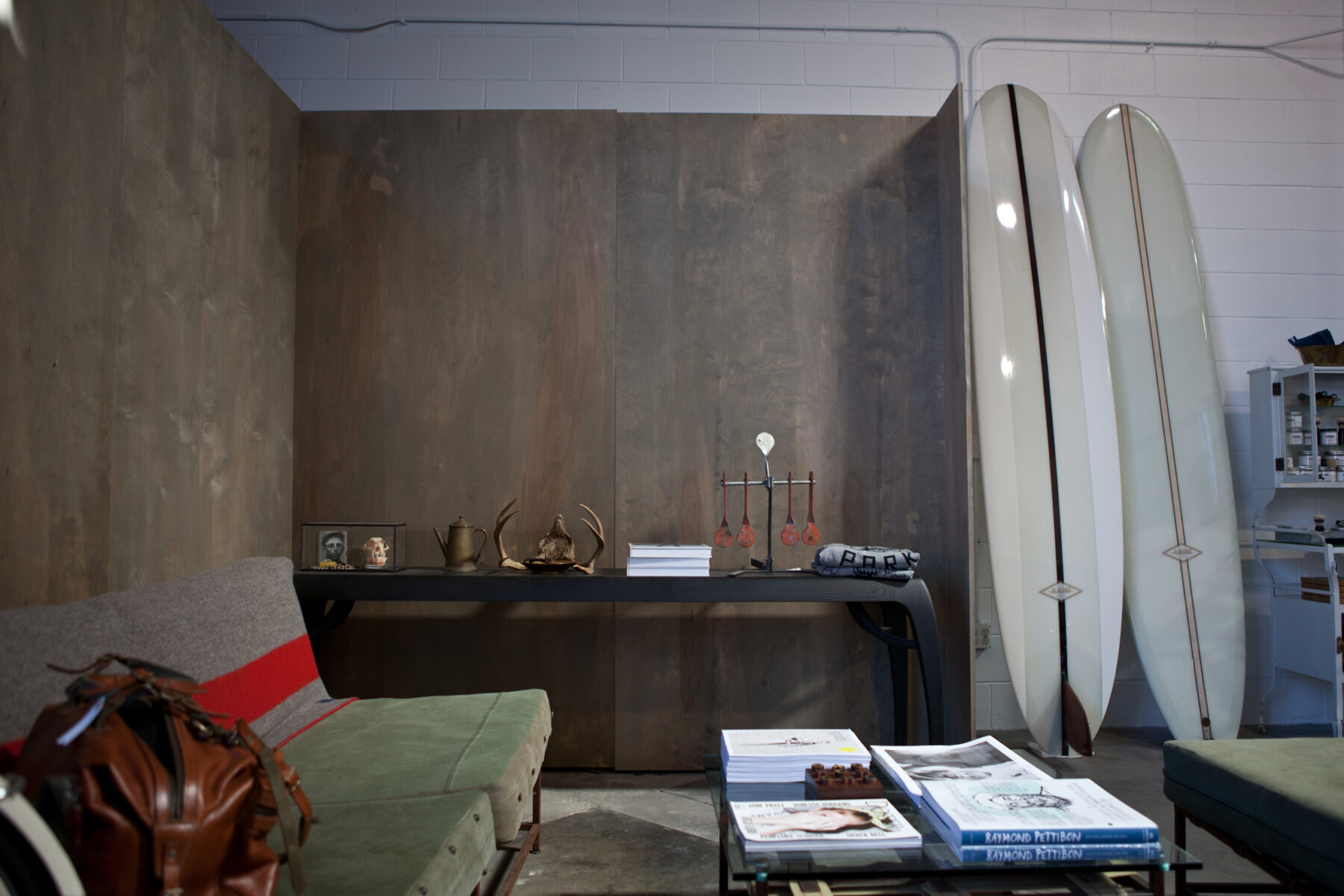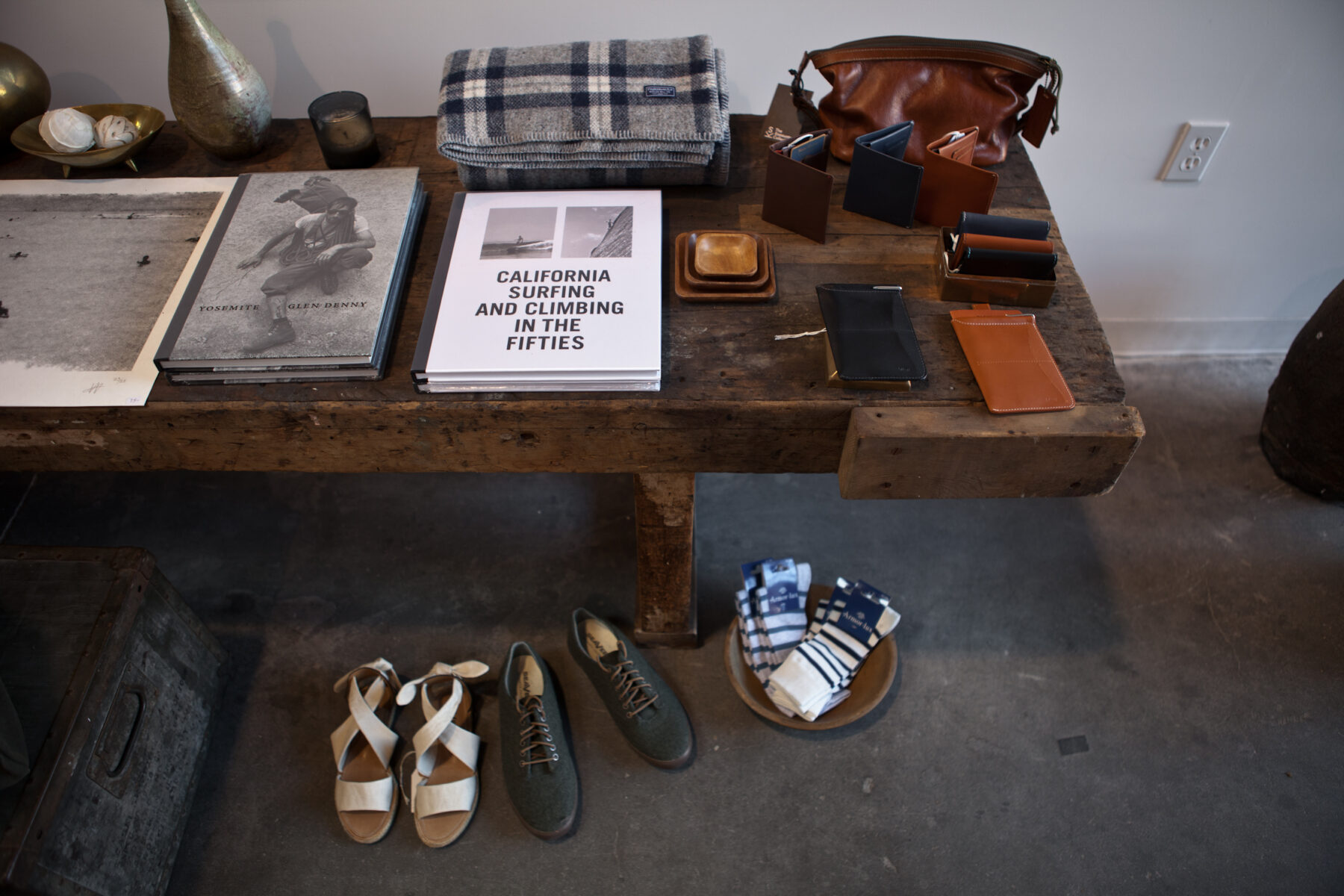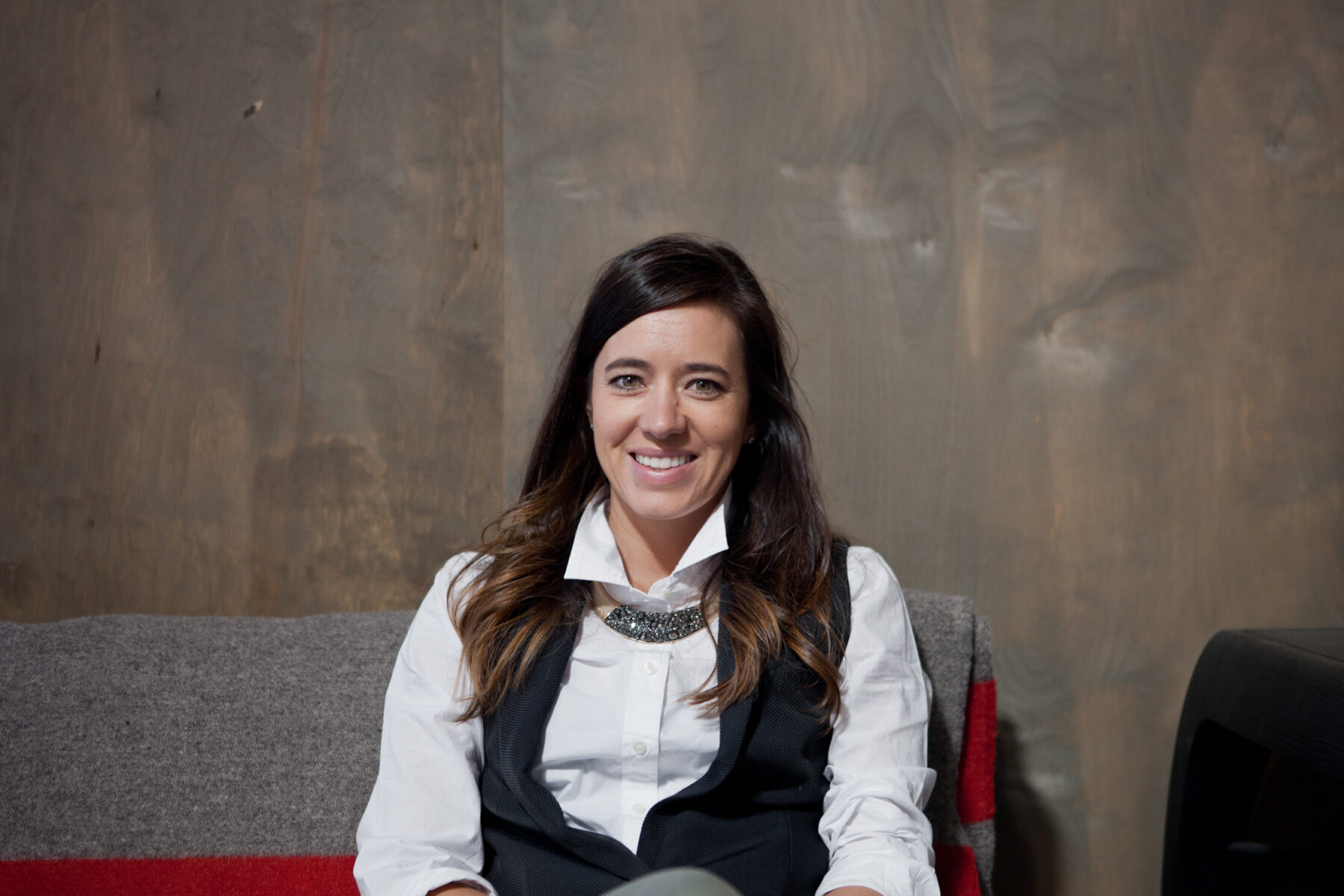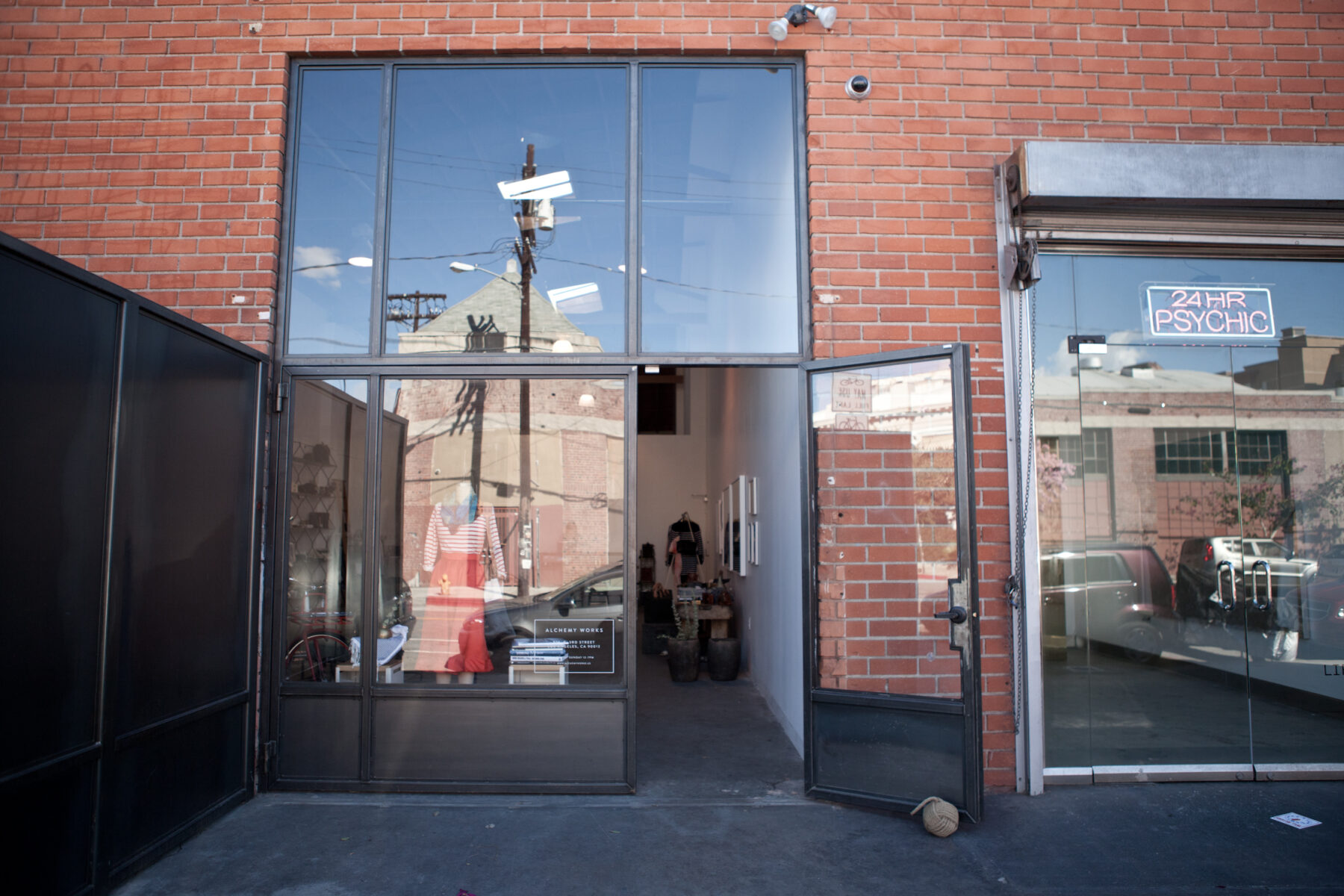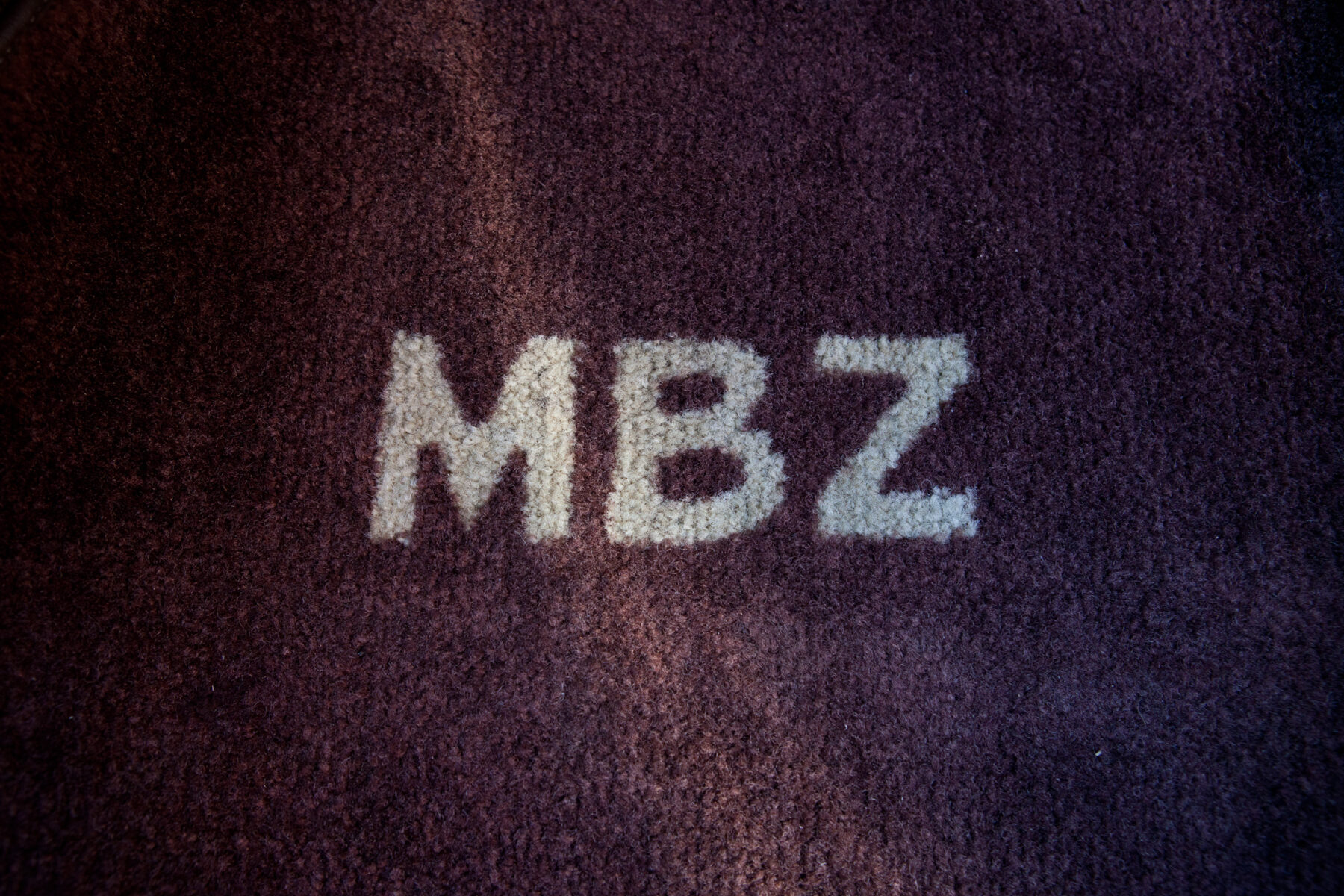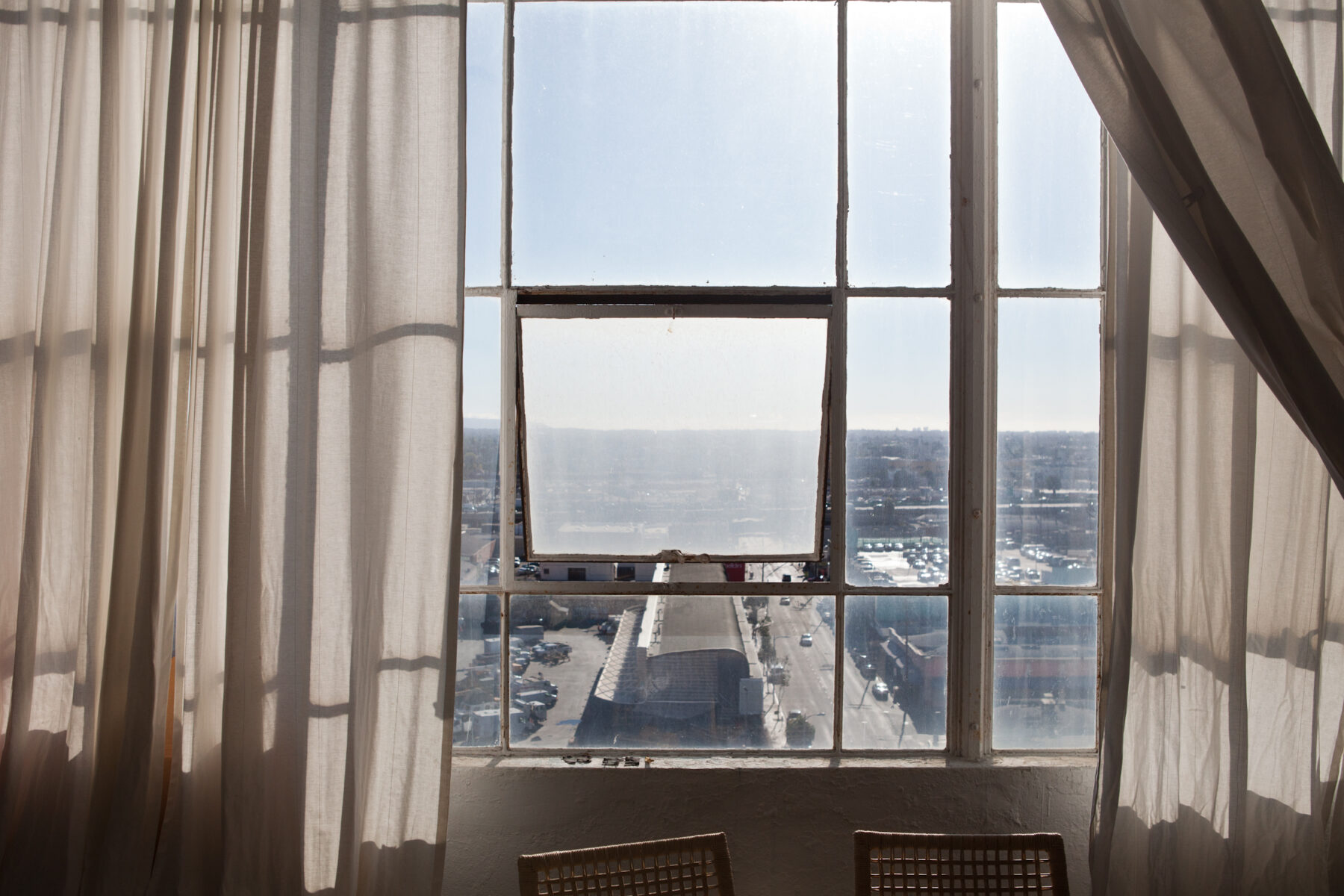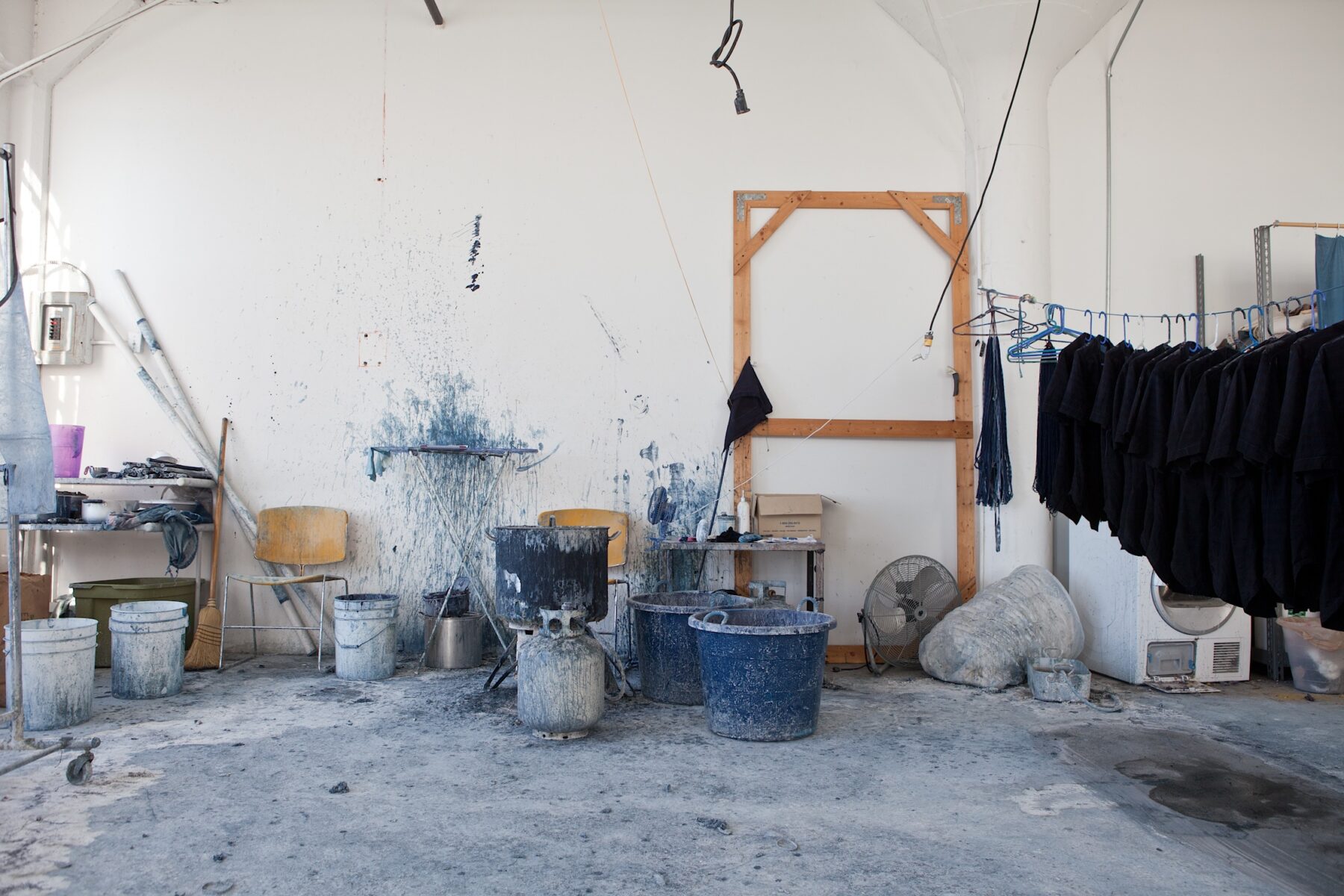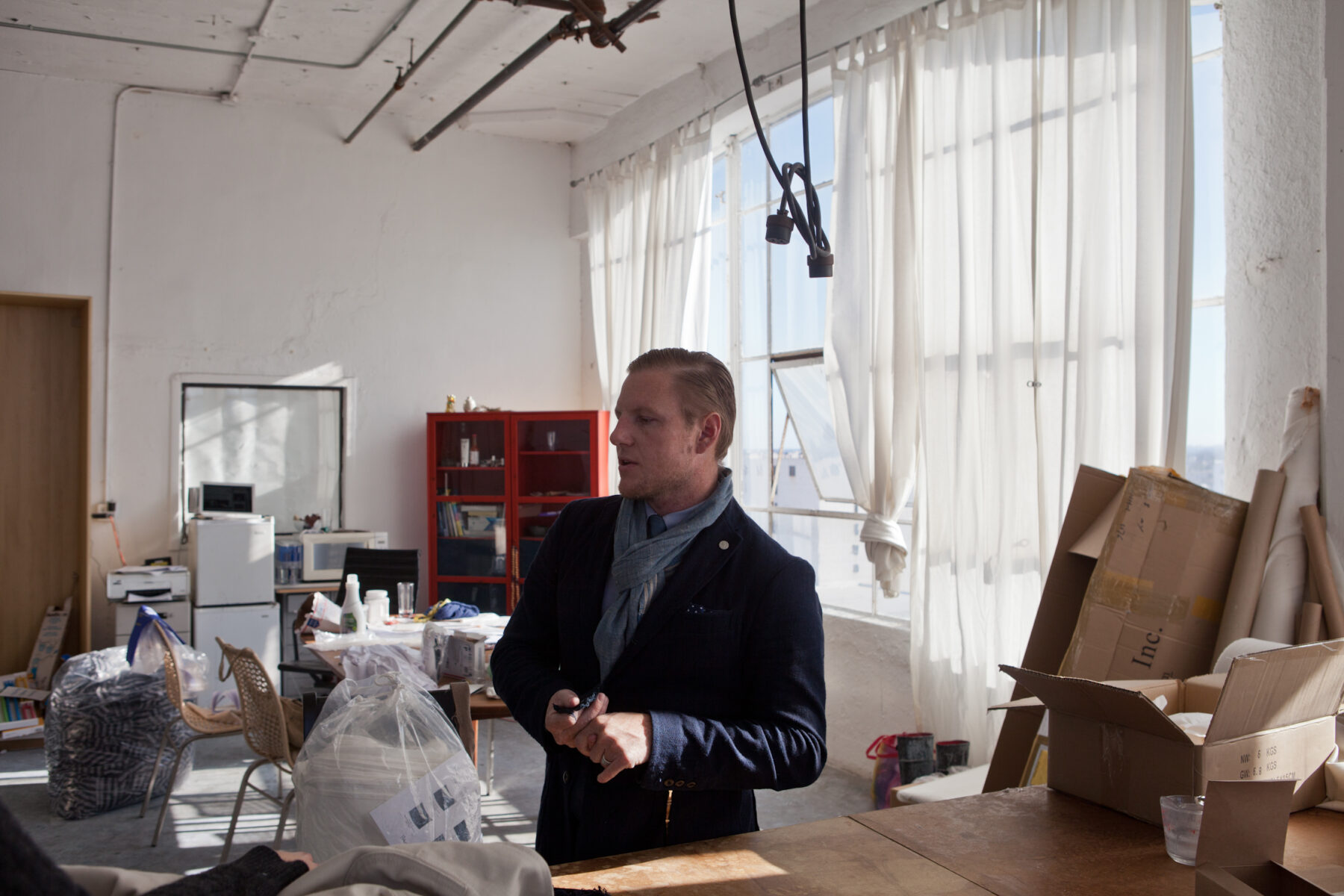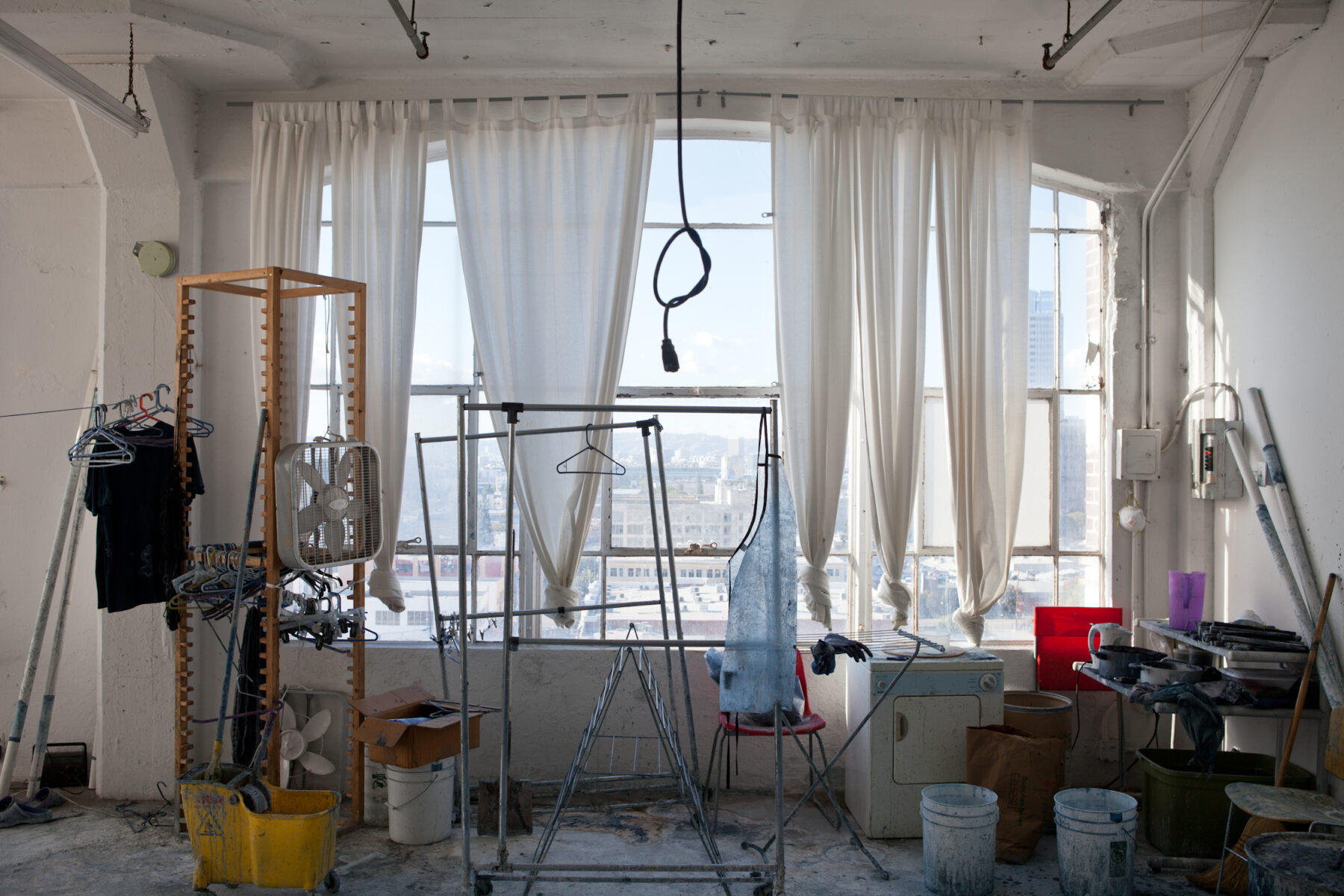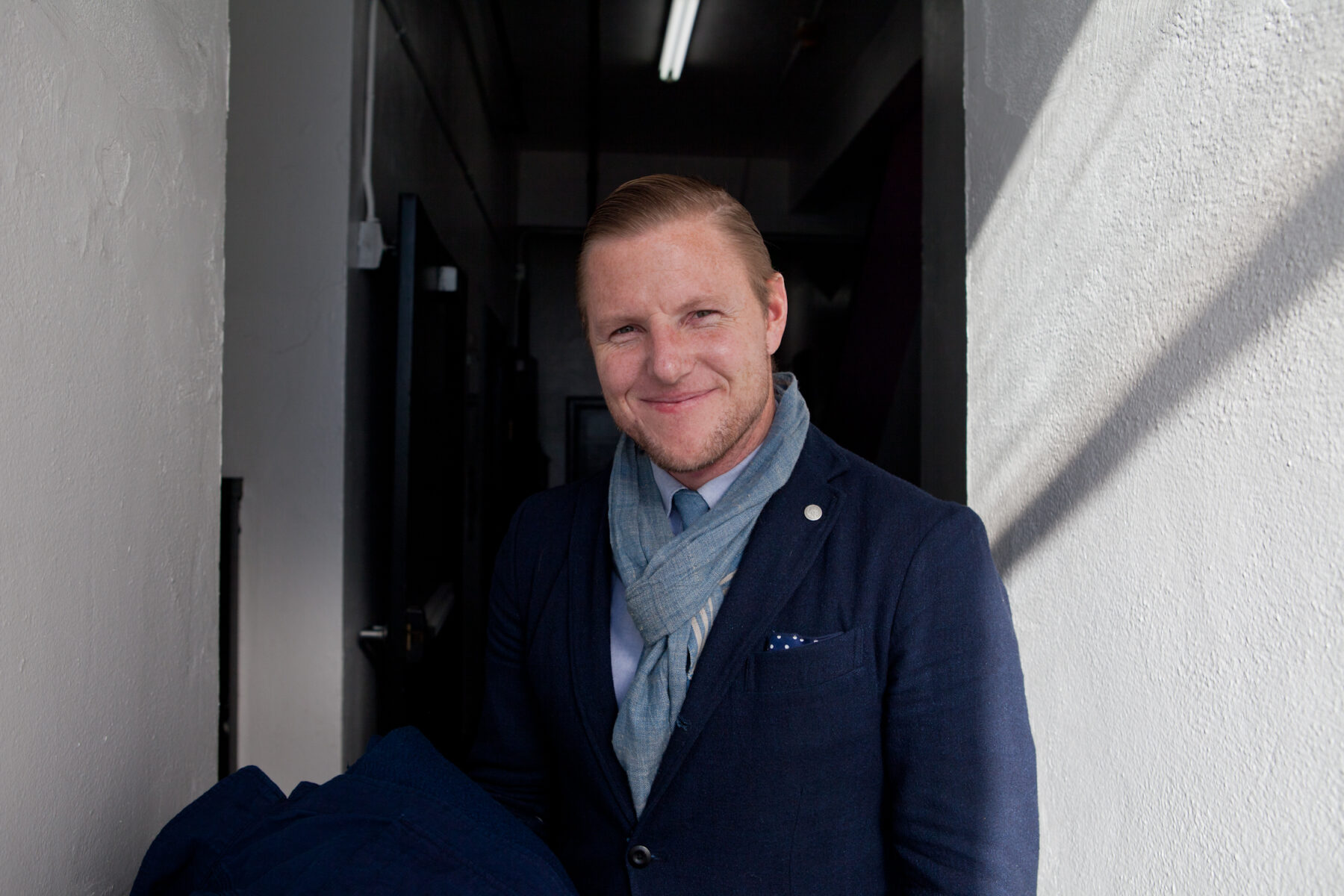Inspired by his travels in impoverished countries, Raan Parton along with his brother Shea, founded a lifestyle menswear and home goods brand to promote advocacy through industry and provide equal working opportunities for people around the world.
Behind their venture lies a philosophy that stems from a need to connect commerce with economic growth as well as raise social consciousness. Apolis, which loosely translates to “a man of no city,” stresses on the importance of sourcing and producing locally whether that means at a factory near their base in LA or in developing nations like Bangladesh and Peru. The company’s mentality boils down to striving for quality and appreciating craftsmanship.
This generosity and openness comes through in both Raan and his wife Lindsay’s personalities as they’re so open-handed with their time and resources to make everyone around them feel important. Raan’s diligence to progress in his field in an ethical and philanthropic way whilst retaining creative integrity remains intact as the company’s expanding its diverse design world.
Caffe Luxxe
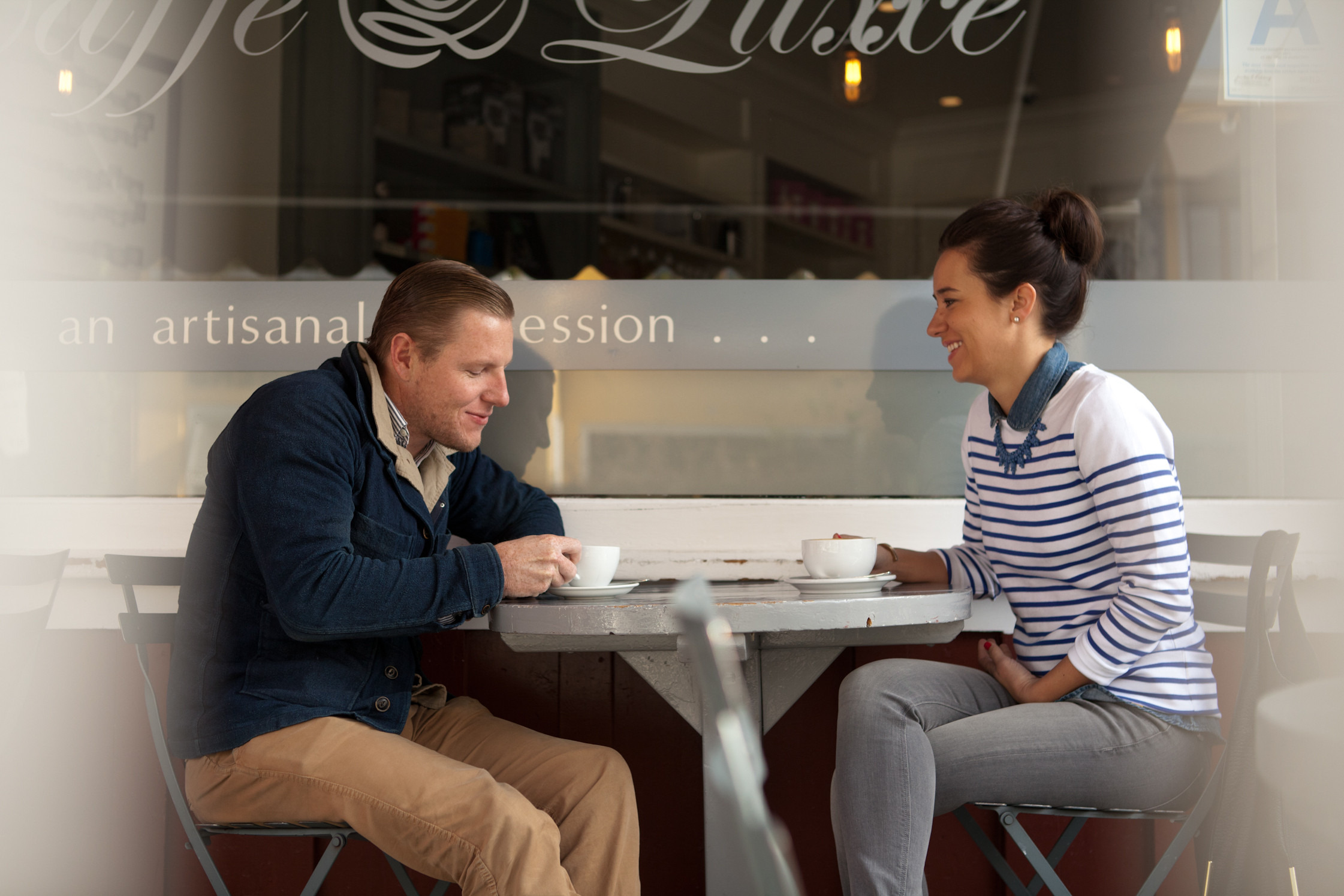
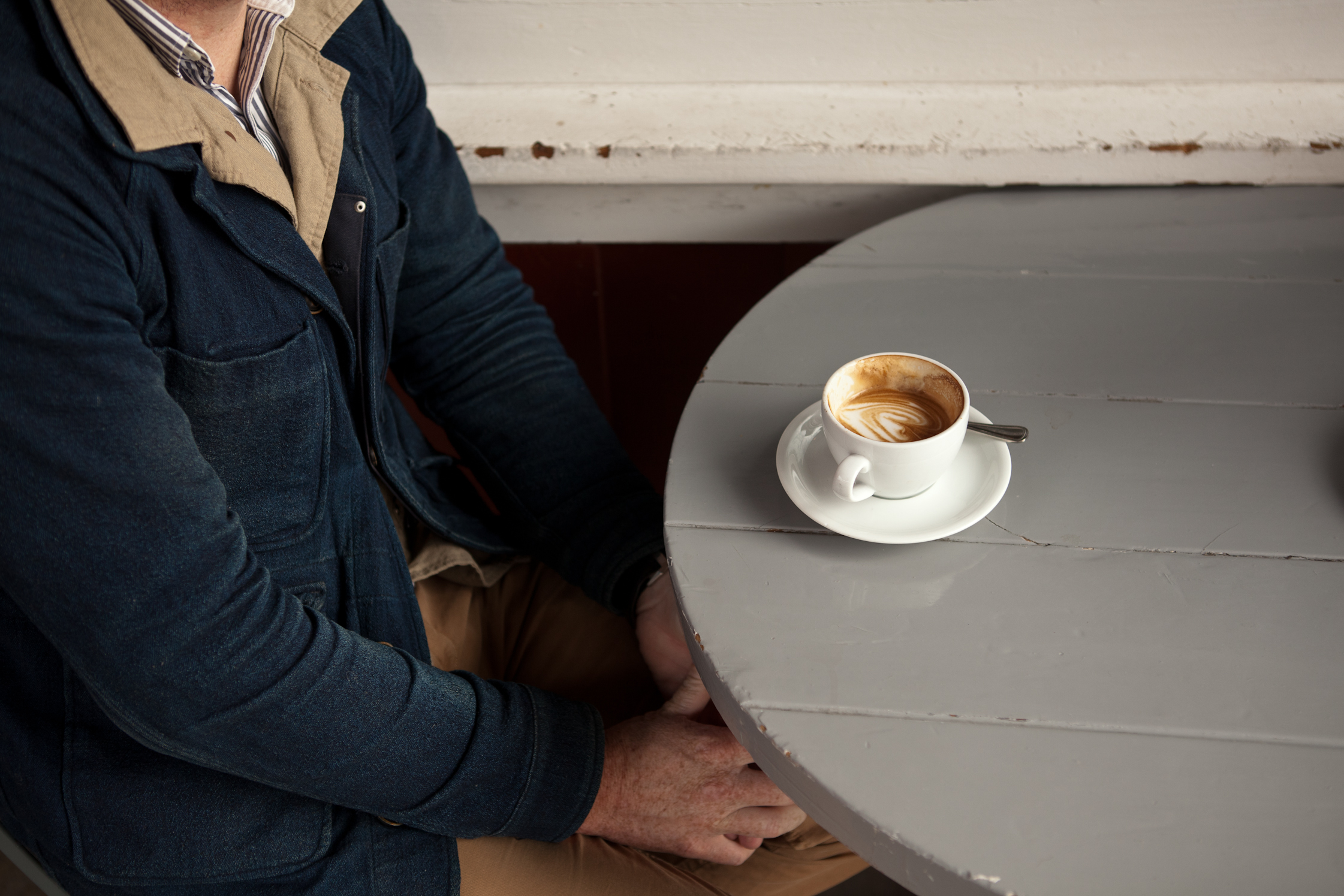
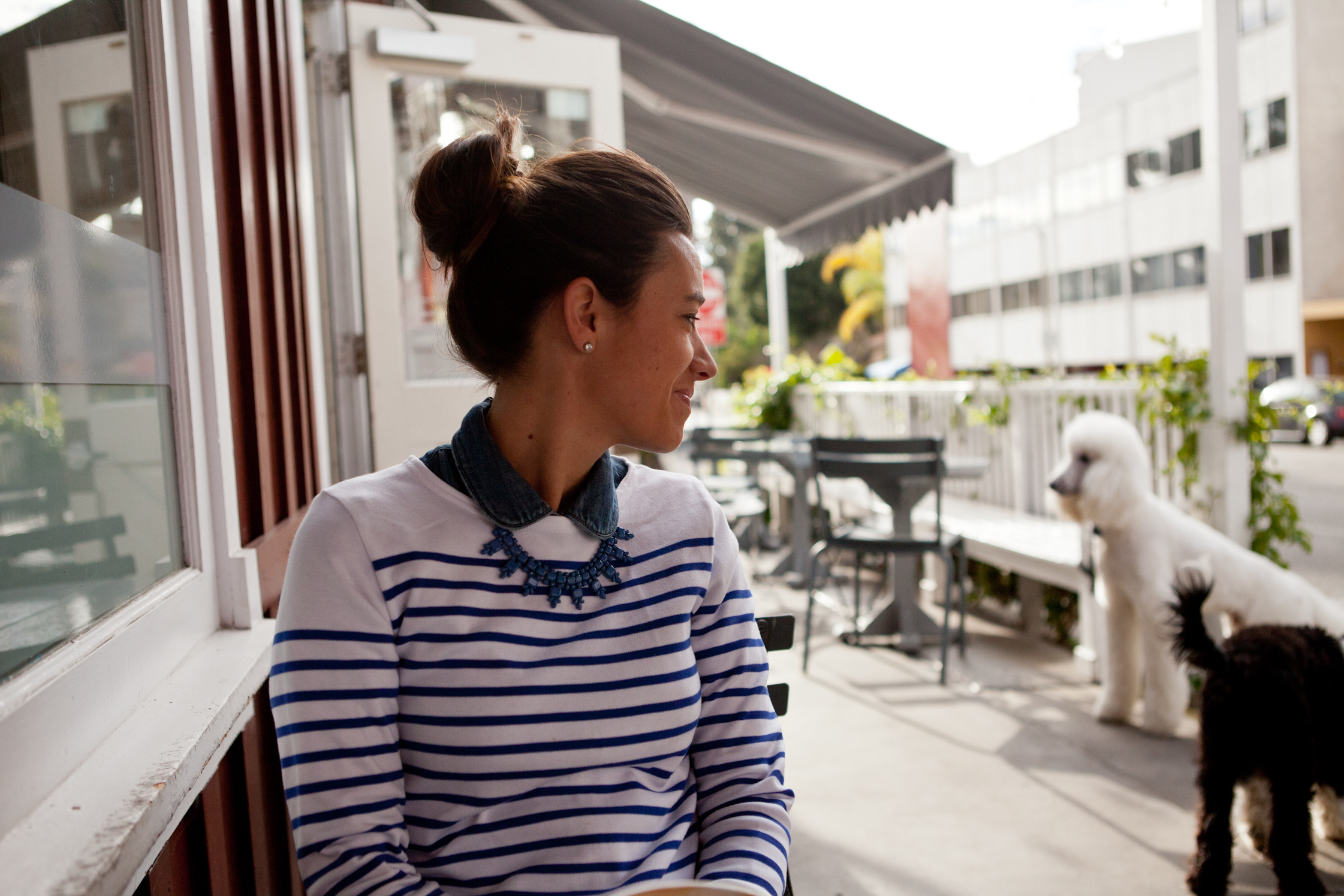
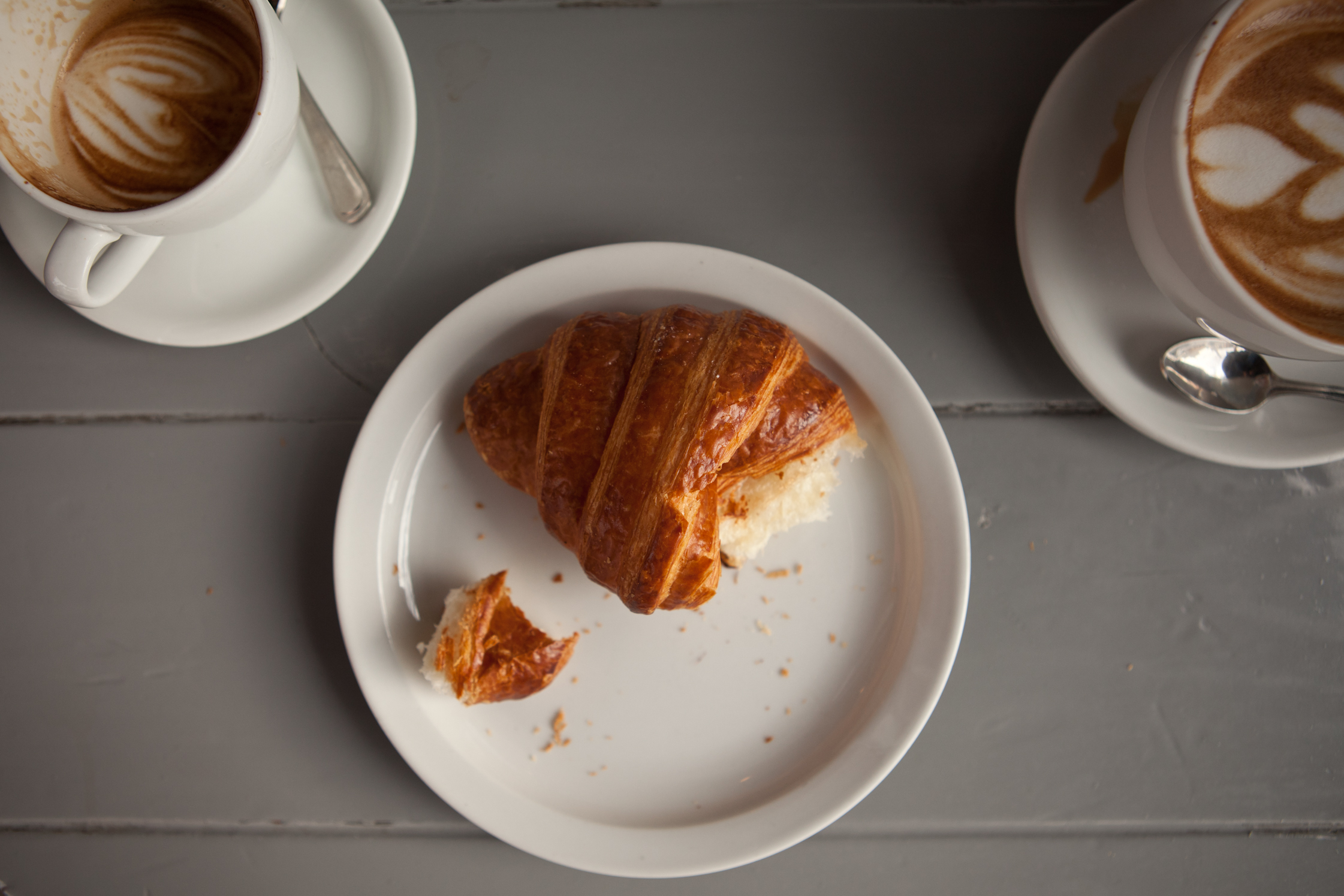
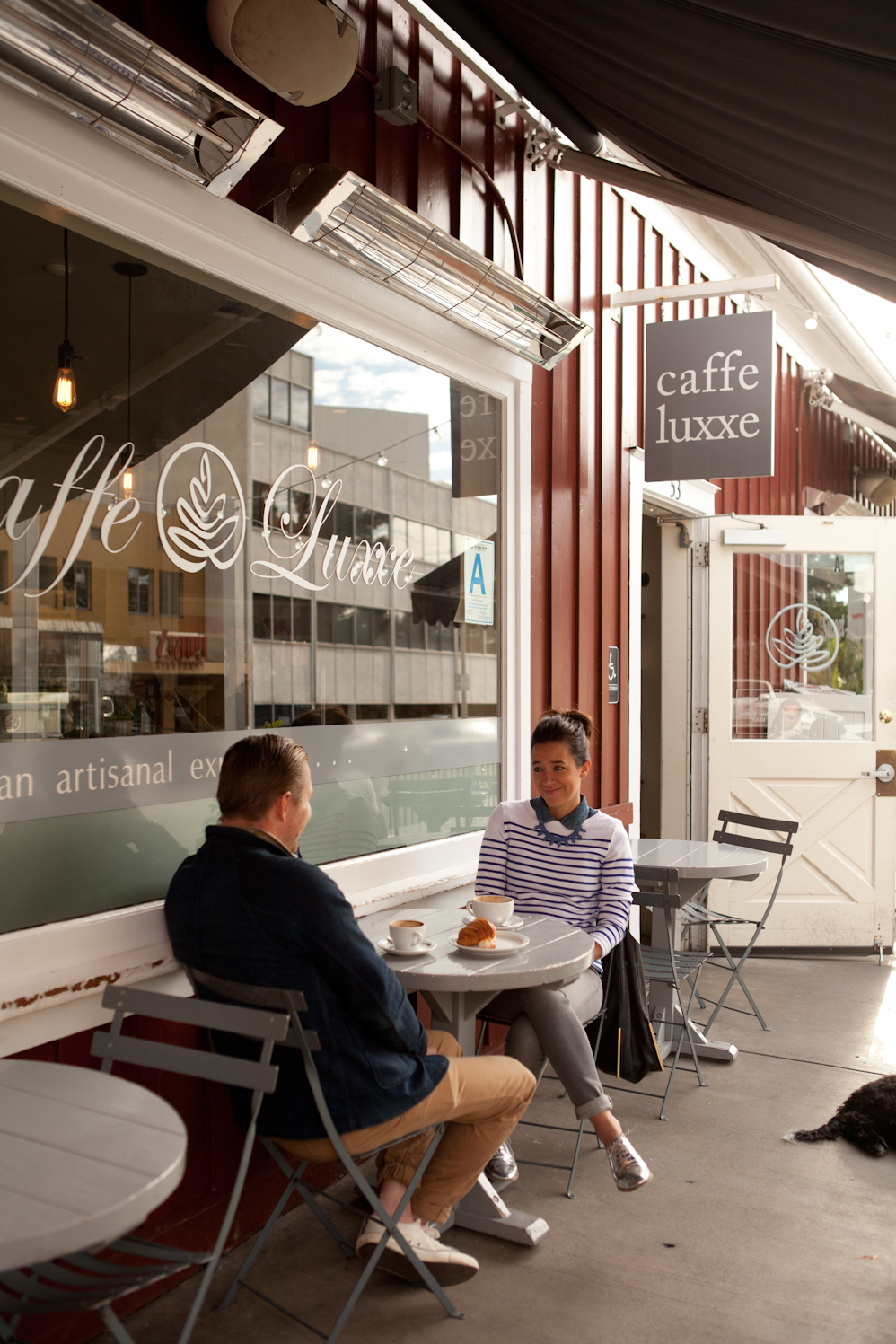
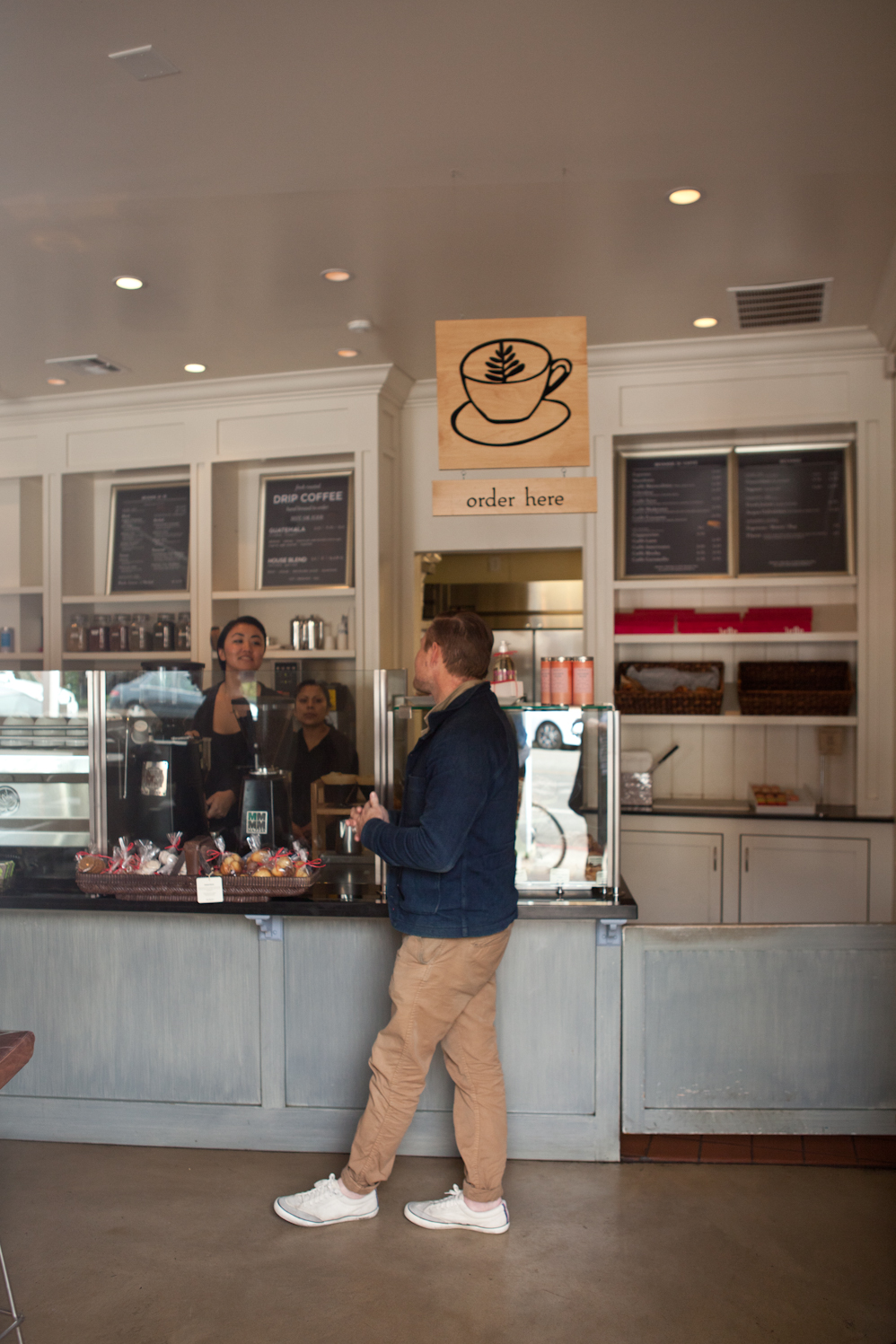
-
Are you trying to continue your Santa Barbara surfing lifestyle in LA?
Yes, but it’s difficult. When you see surfboards you assume that there’s coasts around but in reality the beach is miles from here. Venice Beach is about 15 miles away and the thing with surfing in LA is that it’s pretty seasonal. It’s almost the same in Santa Barbara but here it’s harder because of the lack of options. During summer you have Malibu and Topanga but usually you’re an hour away from the ocean. It might not sound that bad but it’s a mission since the traffic is awful all the time.
The reason why we live here is the energy of the city and the fact that LA is where all the creatives are drawn to in the last few years. We’re in the center of all creative activity but at the same time we still have access to the coastal part. It’s a great location if you want to have some work-life balance. I think a lot of people are moving to LA to have that combination of city life and holiday scenery which you can’t find in places like New York. -
Let’s talk about Apolis and the ethics behind the brand. Where do you think your sense of social responsibility comes from? Is it upbringing, education or external influences?
I think that part of it has come from a lot of travelling which, unlike most Americans, I was able to do early on. My parents understood that my brother and I had to expand our viewpoint and not just see the world through the lens of a small town in Santa Barbara. So they just sent us out to experience how other people lived. Fuelled by their passion for the non-profit world, we got the chance to experience different realities and realize people’s common qualities and needs. We soon understood the opportunity we had of connecting third world developing supply chains with the power of first world economies. This combination gave us a strong interest in that field.
Back then, I was working more in graphic, textile and apparel design and got to spend time in countries like Nepal, India, Mongolia, Laos, Africa and South America. There’s this common proverb that you always hear around: “Teach a man to fish and you feed him for a lifetime” – but in most places I’ve been everyone already knows how to fish, they just don’t have the right bait and big enough ponds. So we’ve taken it as a personal passion project to partner with small supply chains and development cooperatives to codesign products and give them access to a big enough market place globally. Now we work in about 20 countries with 250 retail clients all over the world. We might work with technical factories that produce for luxury brands here in LA or with women who hand-knit in Bangladesh. A substantial part of our assortment is produced here in LA within a 10-15 mile radius and the rest in countries around the world.
Farmshop
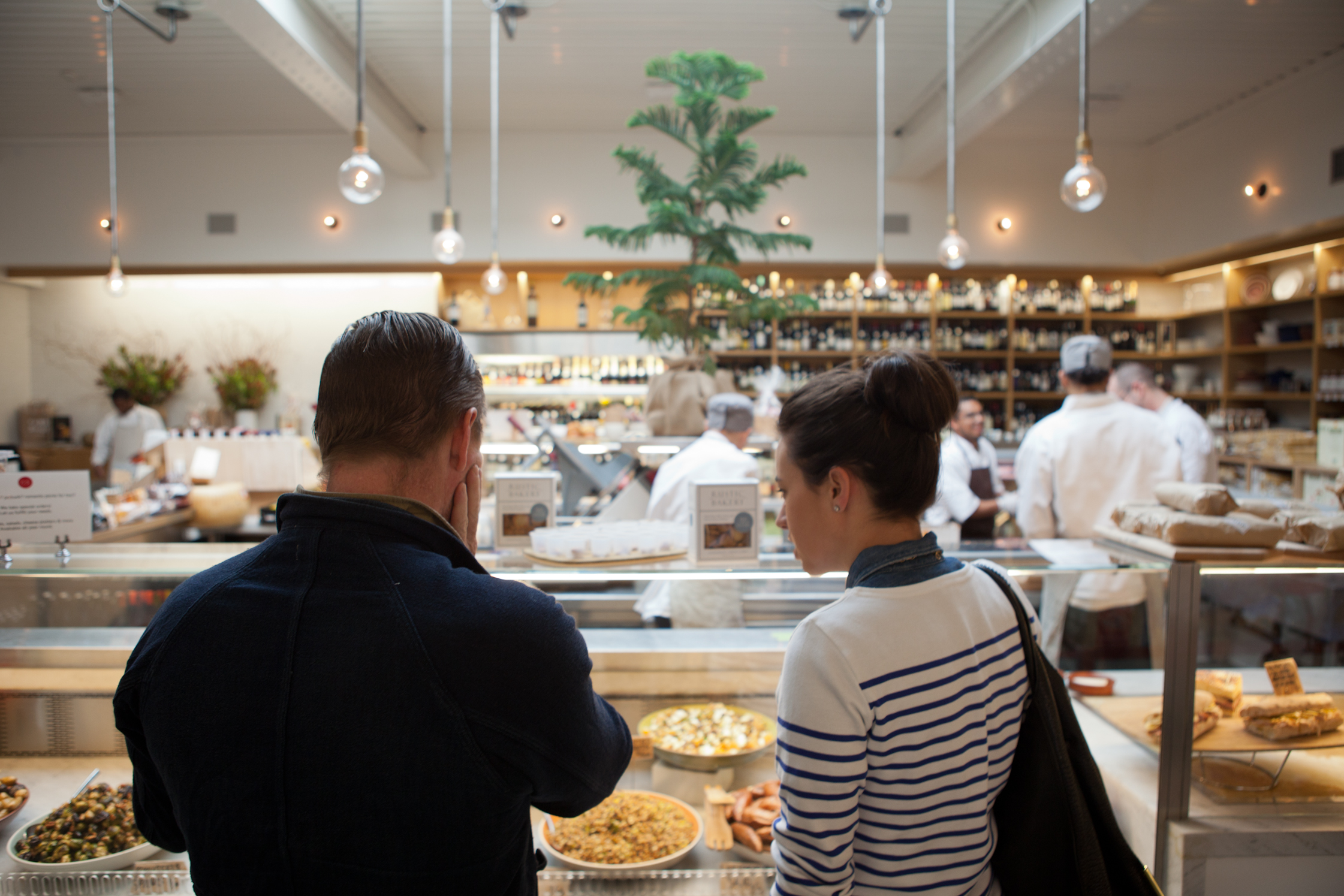
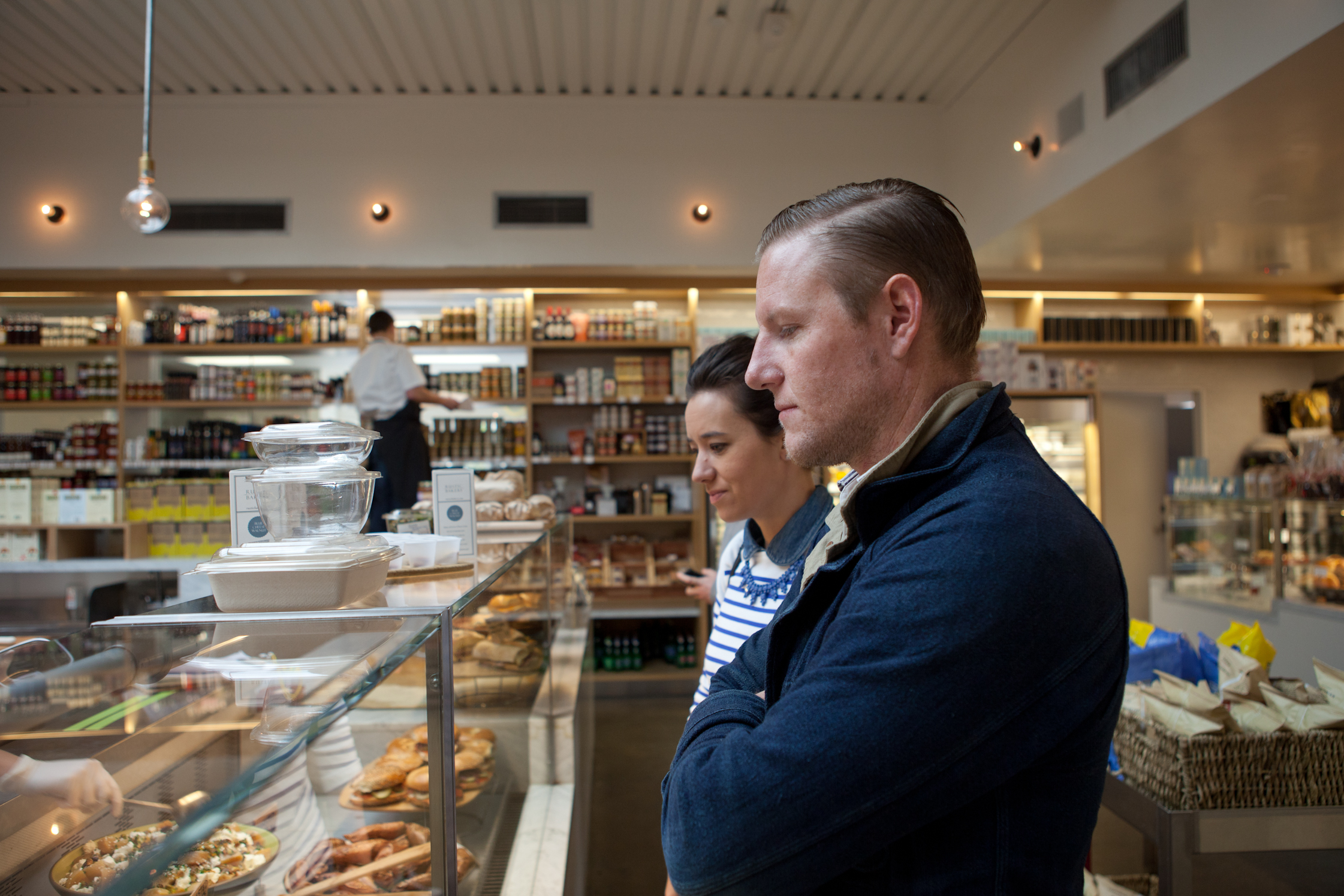
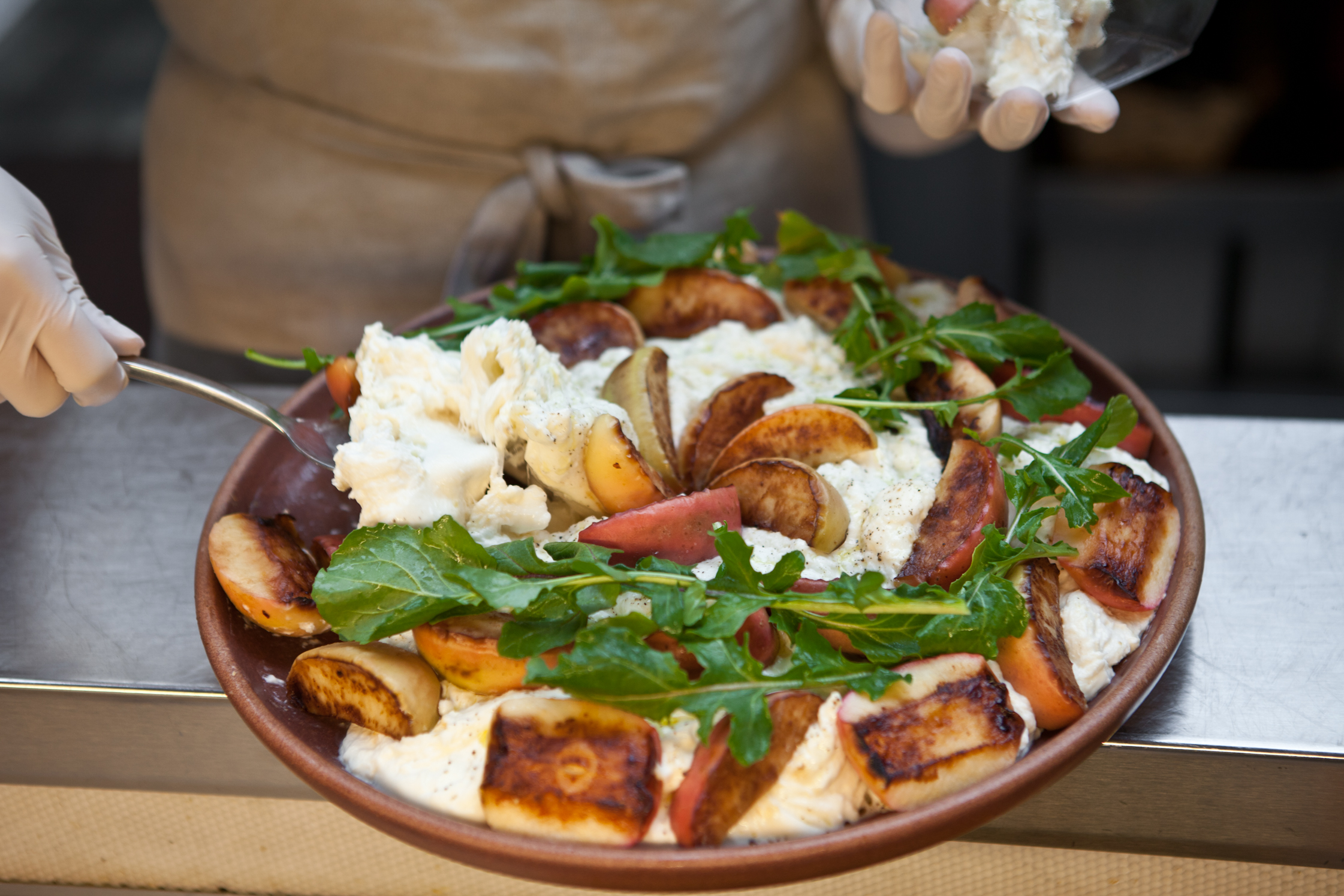
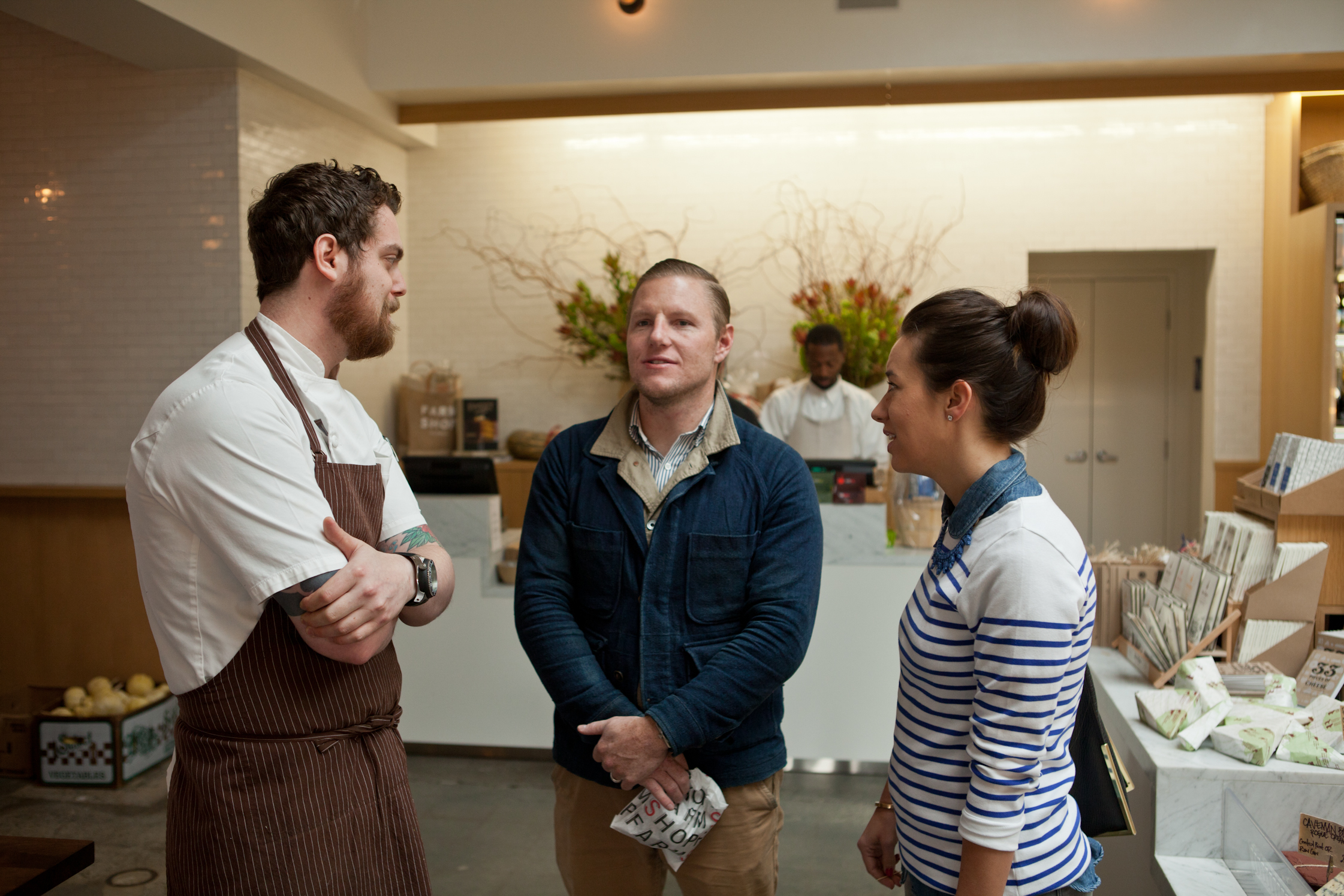
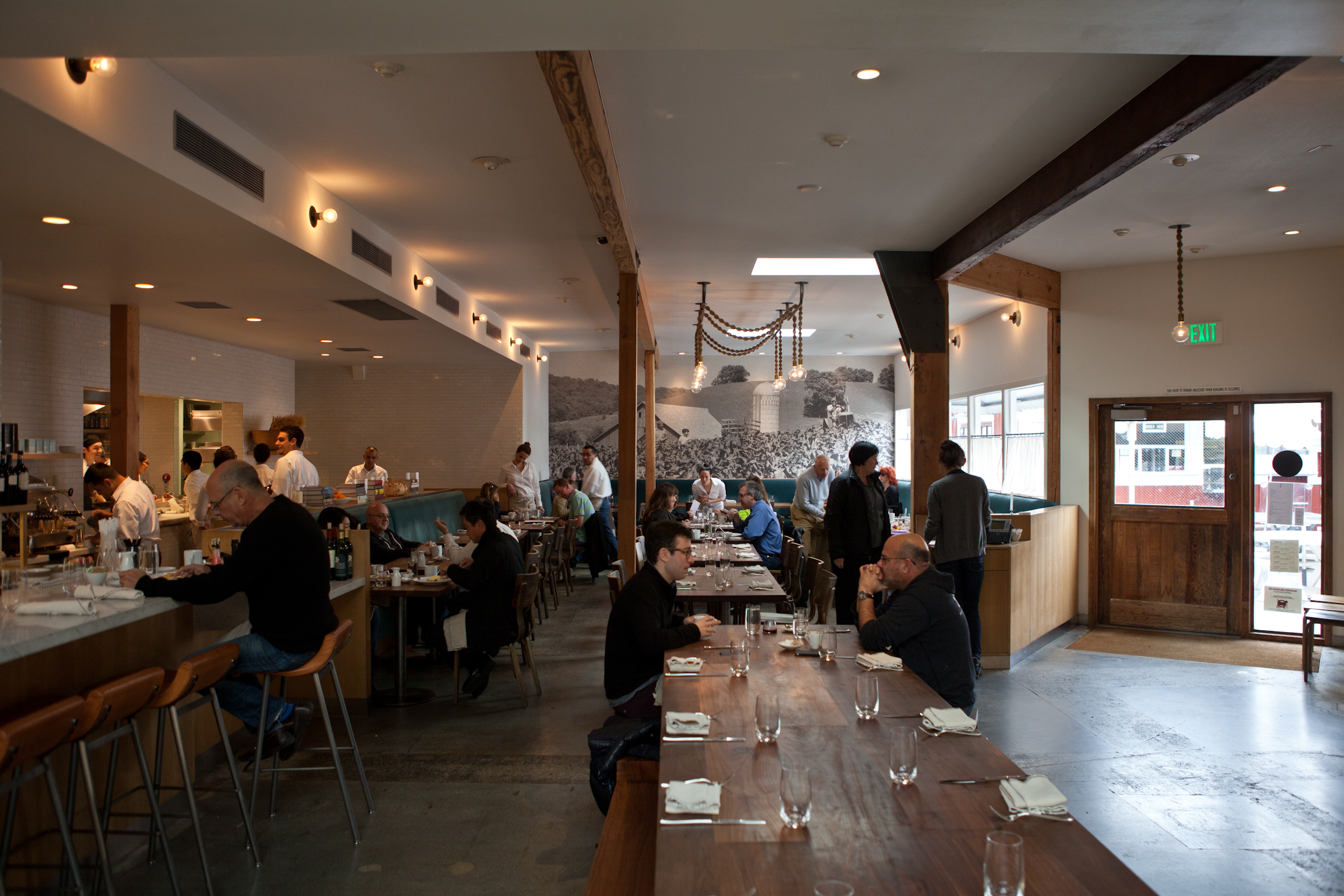
-
What is it like working with developing countries?
It’s really hard because there’s a lot of corruption and a whole lawless environment. You often have to bribe someone last minute to get your garments and textiles exported. When you work within the US you take a well-functioning system for granted.
-
How do you remunerate the people you work with in developing countries?
Fairtrade is essentially a global minimum wage but it doesn’t take into account the longevity of the partnership and holistic involvement in the community. We audit our partners’ initiative on payment. At the moment, we’re working on building sewing schools for training additional staff to join the workforce. But we’re committed with this cooperative in the long run, we’ve been working with them for three years. We have a goal of building a whole expansive facility in the upcoming years. So, it’s more like a holistic partnership. We just give them something and there’s no sustainable, economic engine attached to it. We invest in the infrastructure of those facilities and spend money on it. We also don’t want to start making factories. However, we aren’t selling products with the narrative of development because we want our products to stand on their own. We offer the information behind our philosophy to anyone who wants to find out more. For example, in Uganda we work with farmers who grow essentially non-certified organic cotton but we pay the price as if it were certified. Who would be crazy enough to do that? Our initiative is to work with people, that comes first and foremost.
LA is reflective of that, there’s not a lot of people born and raised here, it’s kind of a nomadic city as there’s a lot of people from all over the place. It’s a land of cultures, ideas and creatives. It’s the opposite of New York where everything is infrastructured politically. Whether you’re a writer, creative, artist, designer or whatever industry you might be in, you have to work your way in the ranks. You have to get the nod and have the pedigree. Whereas, the fun thing about building a business in LA is that it’s so spread out that’s sort of similar to how creative industries are built. You’re doing something and if it’s good people get excited about it. There’s no politics to keep new creative thinking down.
Alchemy Works
-
That’s also quite American though, as an ideology and attitude.
Yes, but even more so here in LA. If you’re doing something cool people will want to know more about your work. It’s not about credentials. I have friends from the design community in New York who work so hard to get to certain levels and then get to even higher levels. Here, I feel like if you’re doing something you’re passionate about then you can be successful.
-
Berlin used to be like that but it’s slowly changing, the networks are getting more established, everybody is growing up and kind of look after their own people in the end.
It seems to me that LA is like Berlin ten years ago. People are just excited. That energy is such a big part of our life here. Having access to a lot of places in the south, north, wherever. Also having so many passionate and creative people around you adds to the whole experience. Everything we do is dictated by people – our entire business is completely people driven and where we’re based there’s a strong sense of community.
-
I take it you’re happy with how everything is working out and the company’s success?
Yes, it’s been going well. Since November, we’ve started this additional concept next to our Apolis flagship called Alchemy Works that acts as a kind of neighborhood clubhouse. It’s a way to have a wider edit on what we could compliment in here and have a lot of friends doing amazing things. We host a lot of events as well and many of them don’t necessarily match what we’re doing with Apolis. For example, a ceramicist had a show with her work as a birthday gift from her friends and it was cool that we were able to offer a space for that sort of thing. Alchemy Works is more reflective of my personal style juxtaposed with the Apolis aesthetic we’re trying to keep throughout. There’s a warmer and organic feel to it.
Apolis
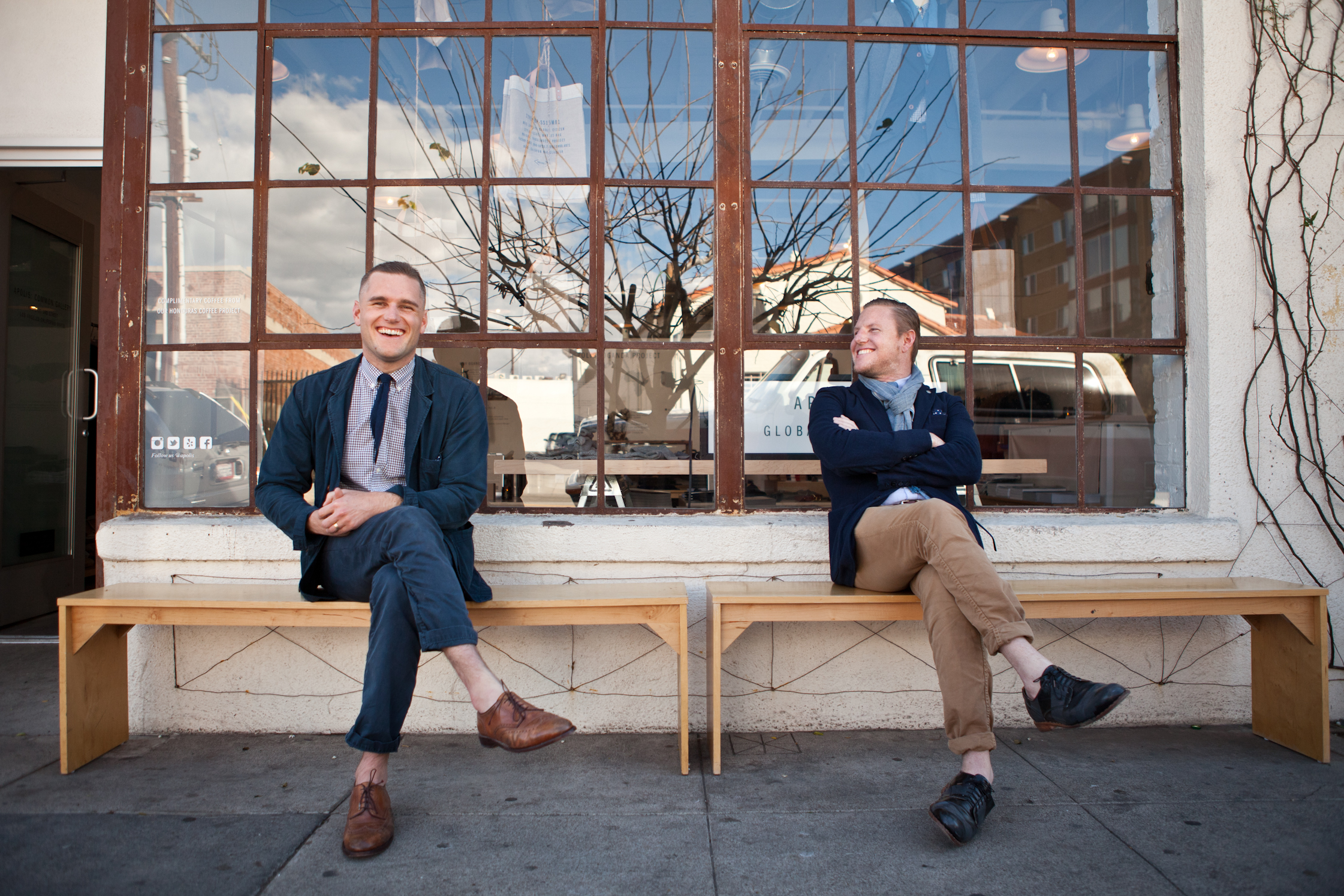
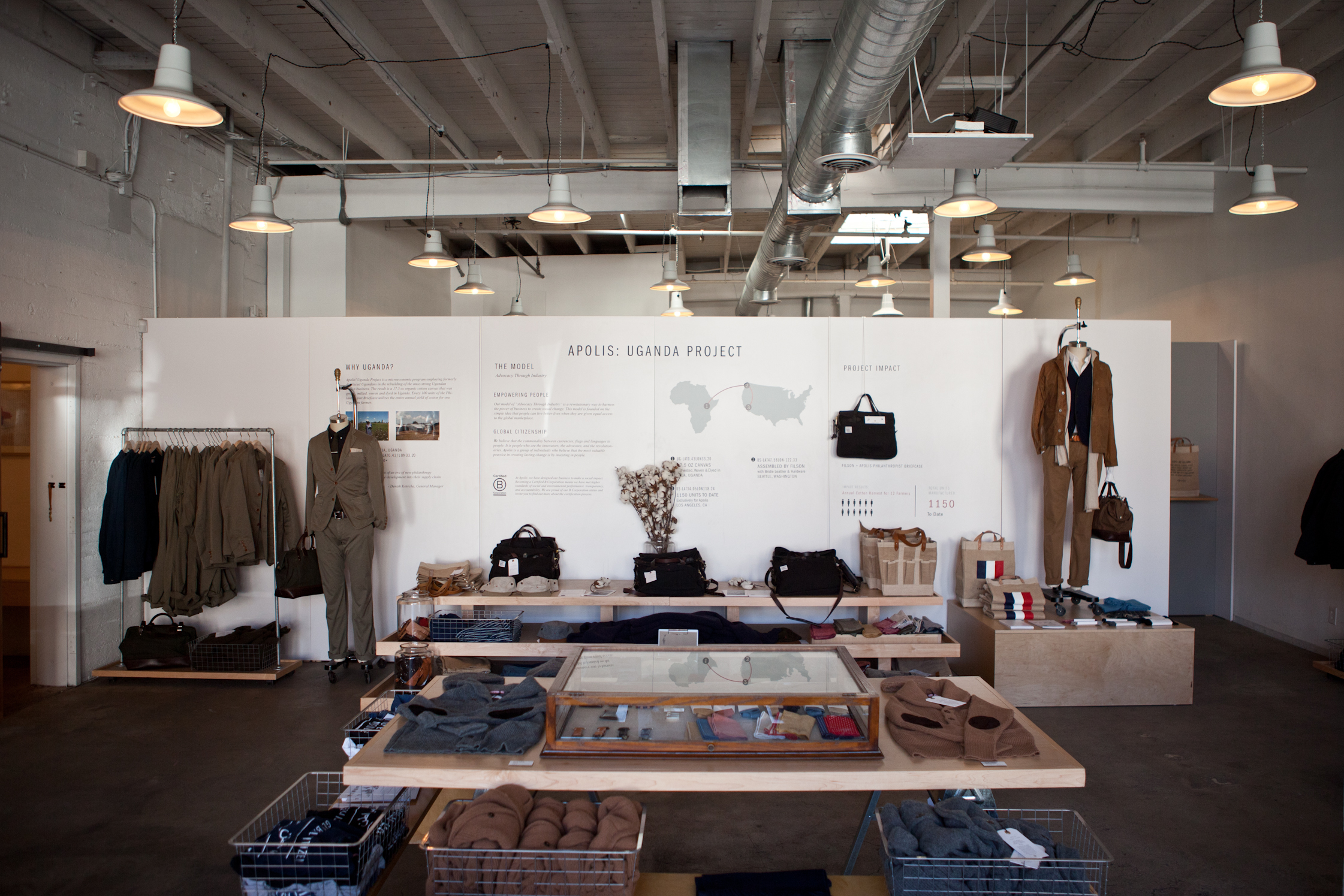
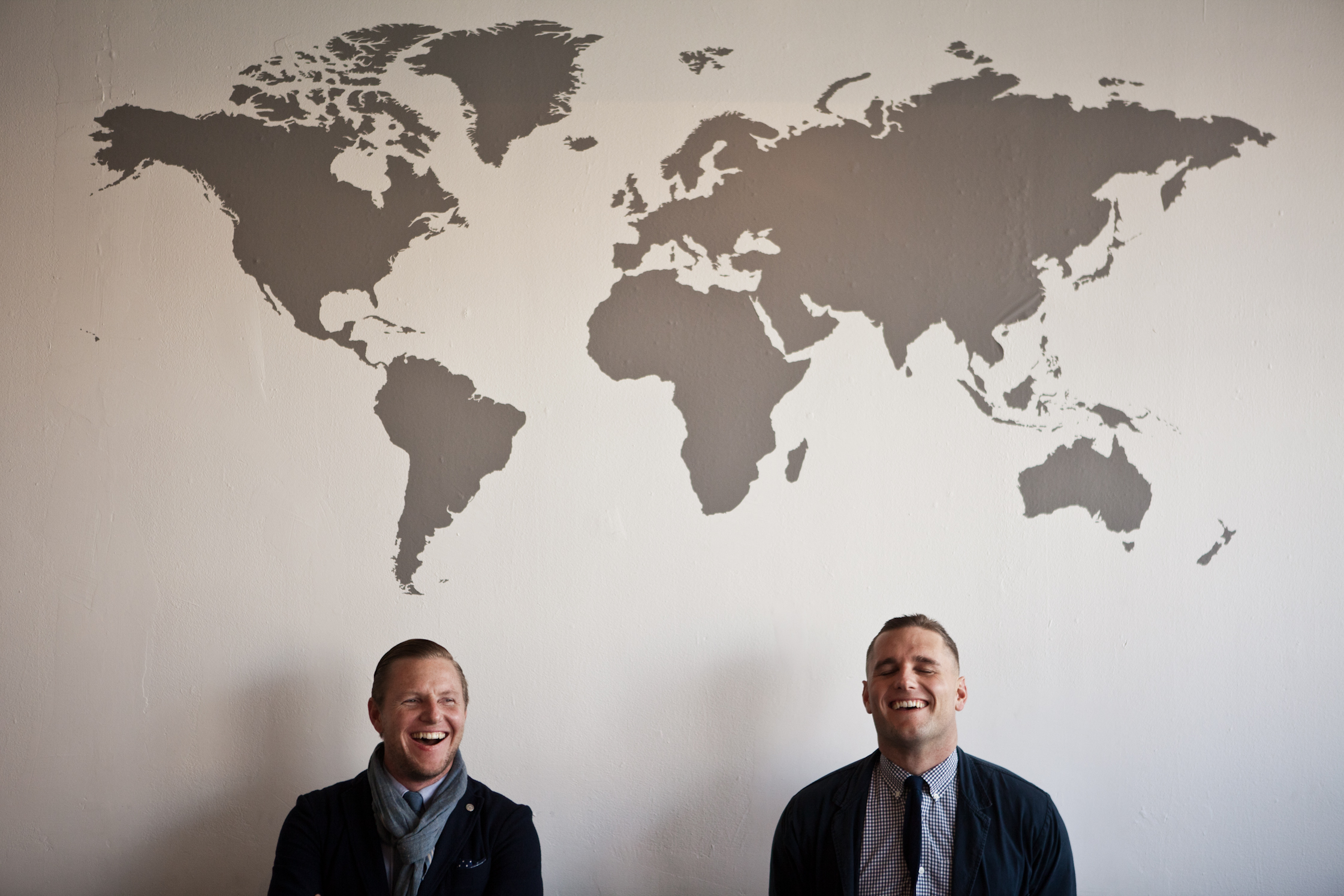
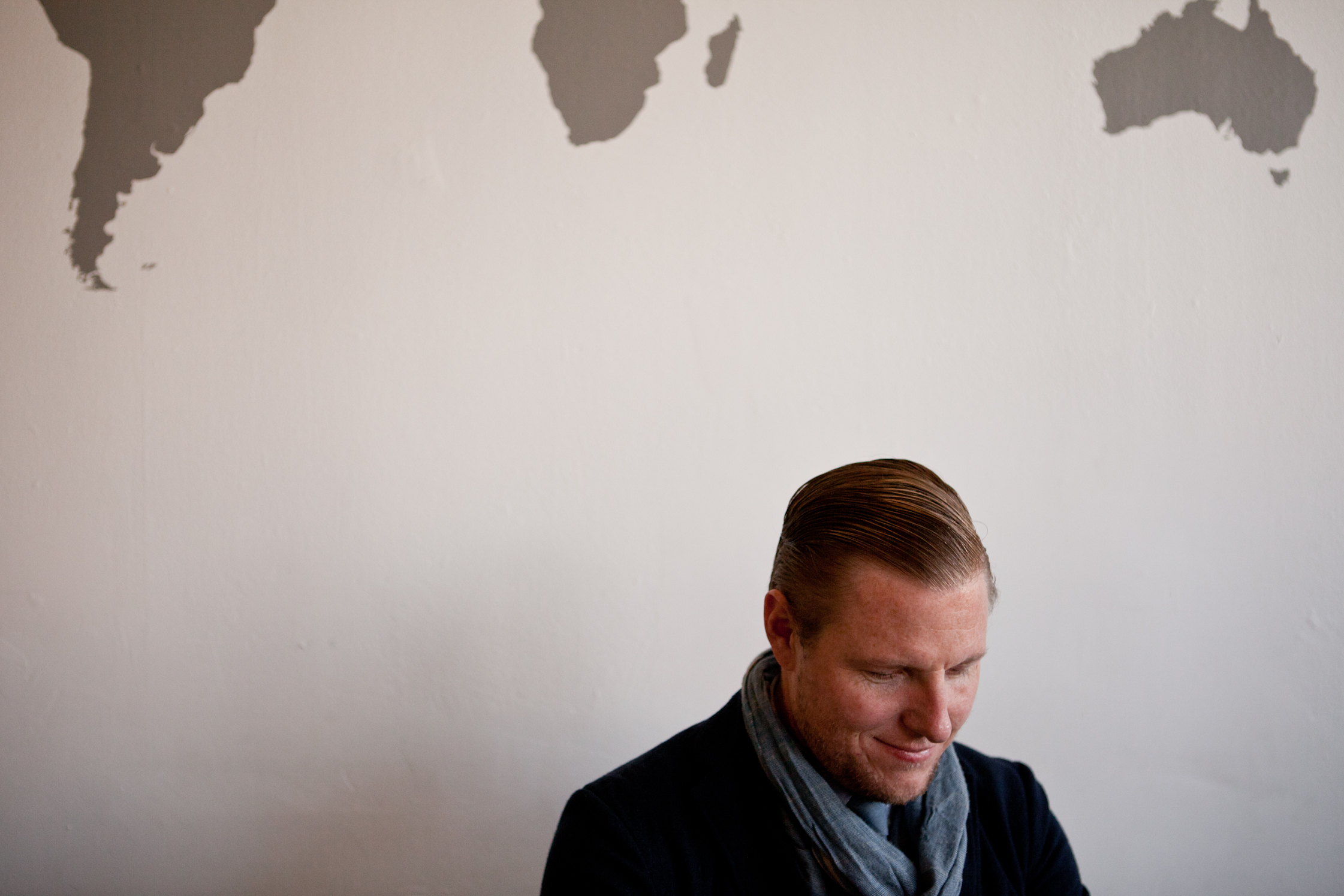
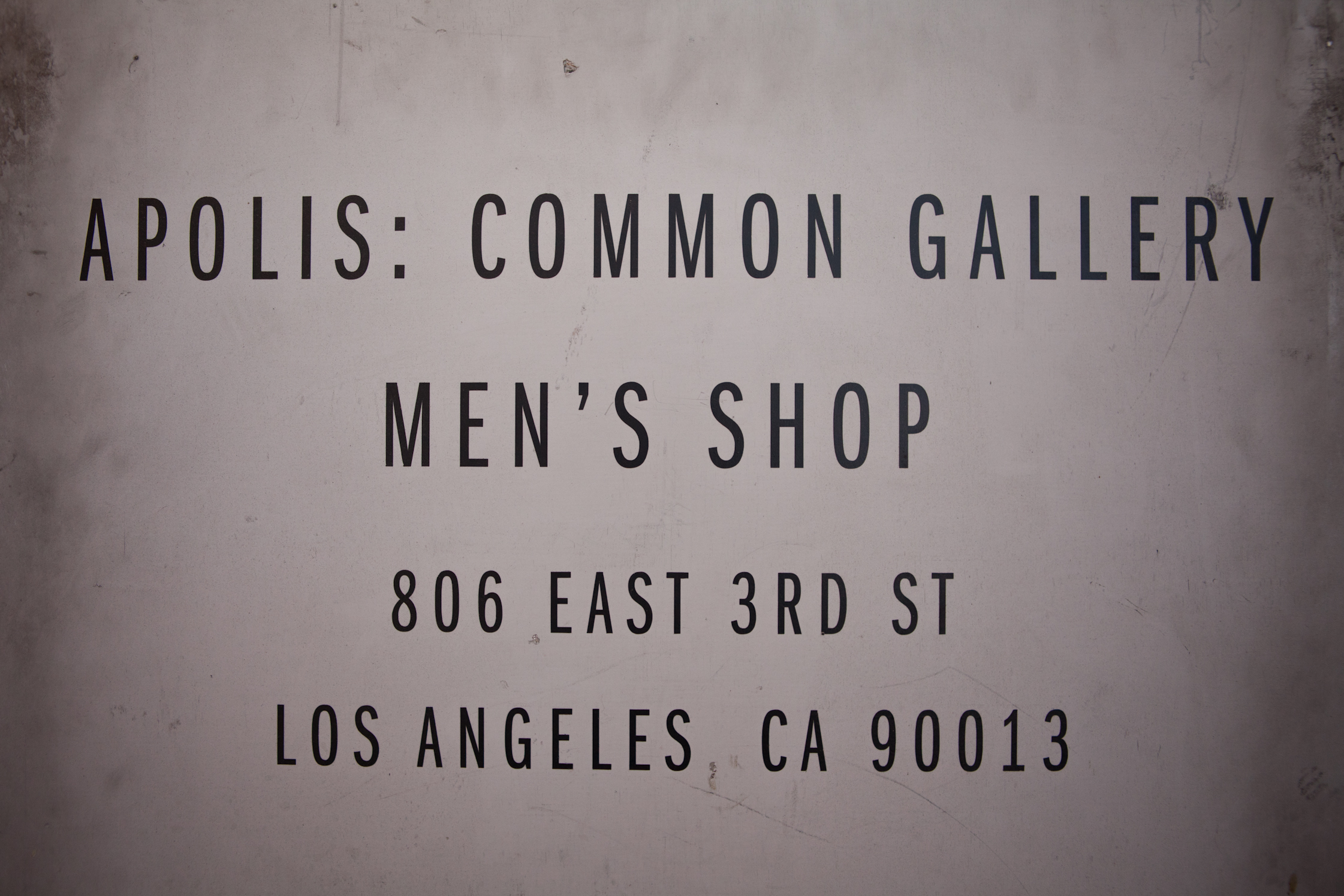
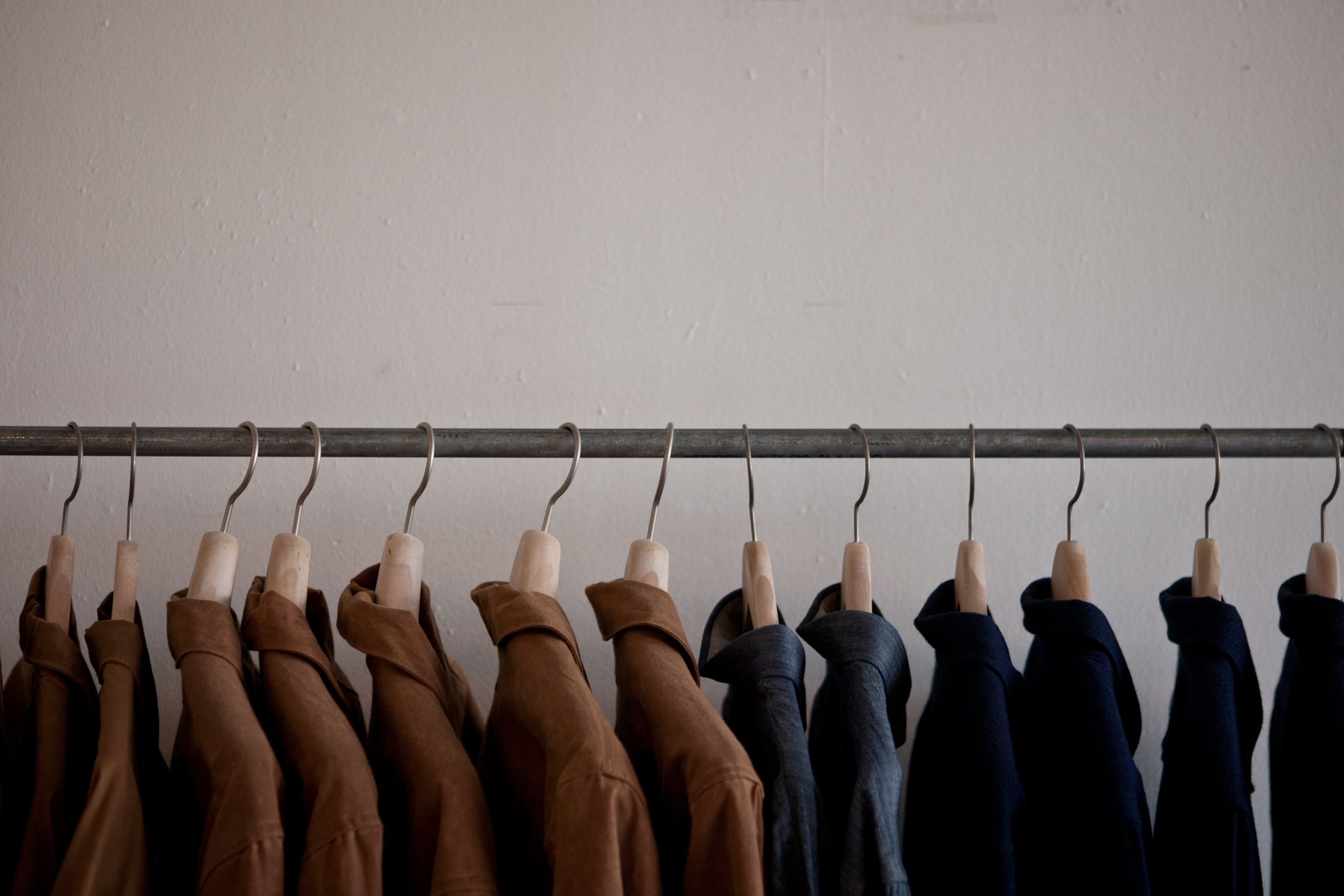
-
So you have the Apolis shop and Alchemy Works. There’s a confluence of different creative outlets.
I think you have to connect many dots now to be in the middle of it all. I think of retail as a communication channel. Publishing digital is amazing but it kind of got a bit oversaturated so it’s refreshing to have unorthodox spaces. People can’t really define what we do. What kind of store is this? We have photographers, a small coffee house, the gallery and our shared office in the back.
I took a bit from a brand perspective.There’s a lot of obscure categories that we had to develop into. We also have a hospitality concept. The metrics for apparel brands and hospitality groups are all kind of based on placement. I like the idea of making it less about the consumption or pricing and more about the experience. The cost is based more on the level of service. We’re interested in how brands can intersect with space and community. We also have an agency called CNTRLgroup where we do entertainment marketing and a lot of project management.
-
How many people are you?
For Apolis ten, Alchemy Works four and CNTRLgroup four. It’s still evolving. We’re always branching out into different directions whilst retaining one core philosophy.
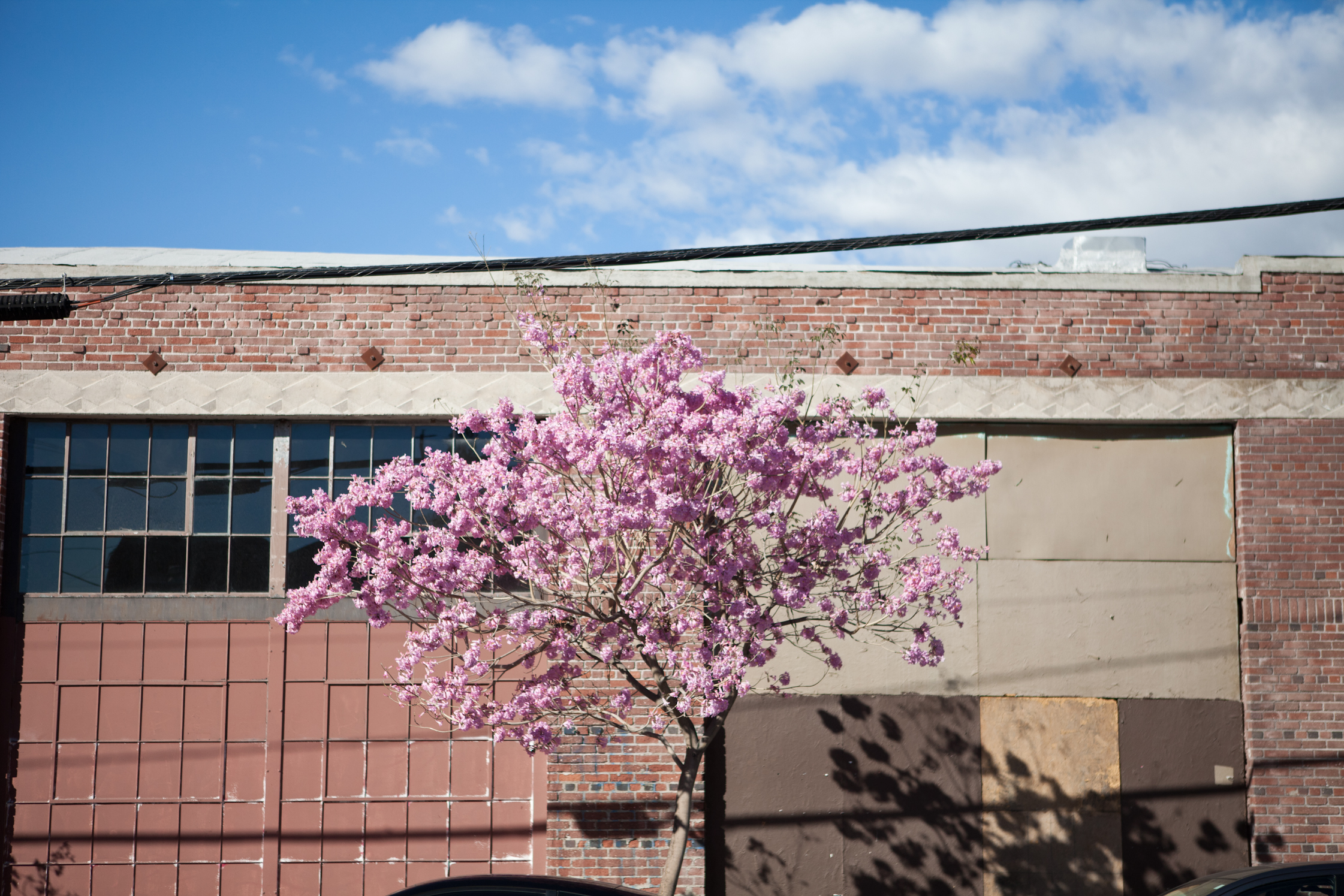
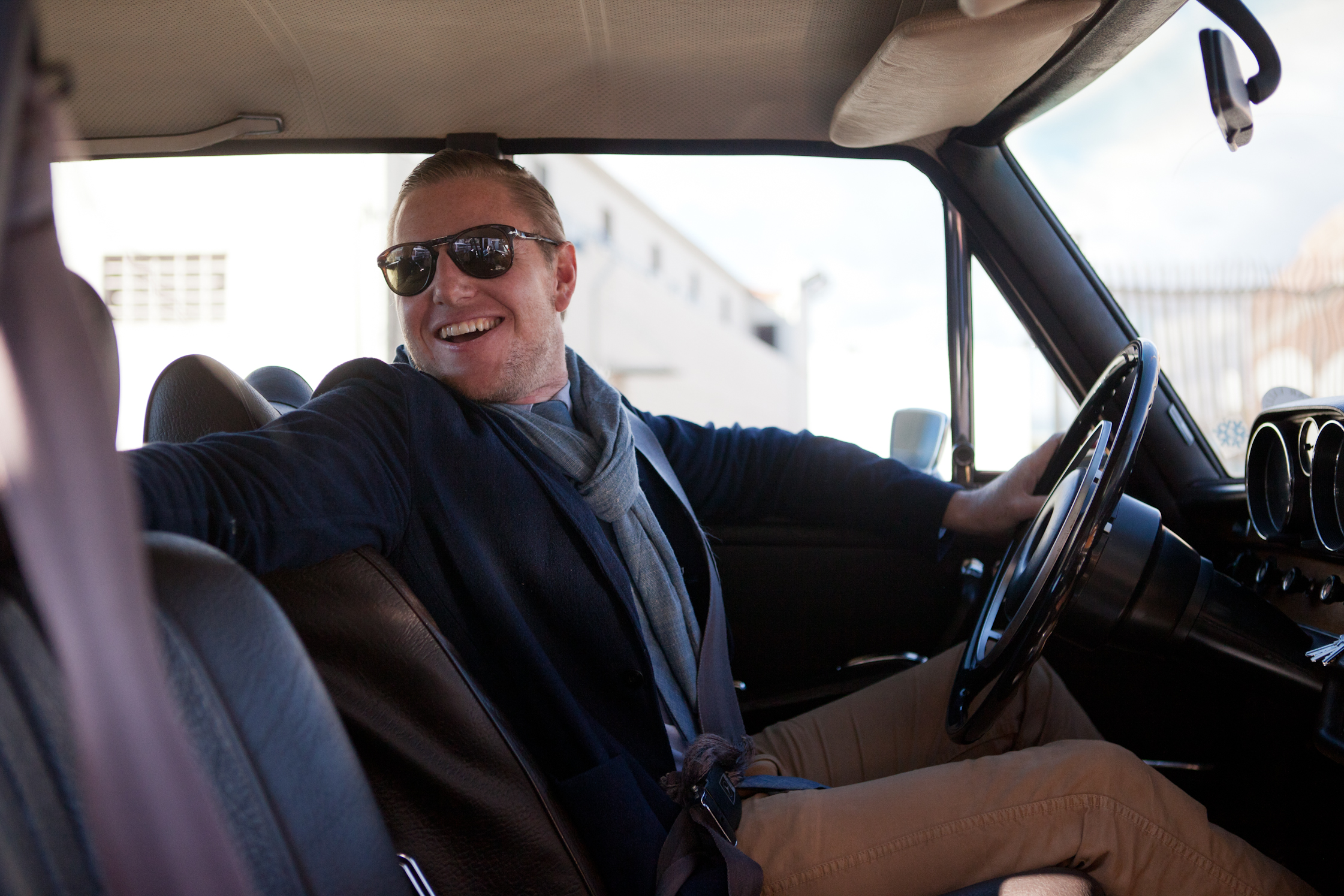
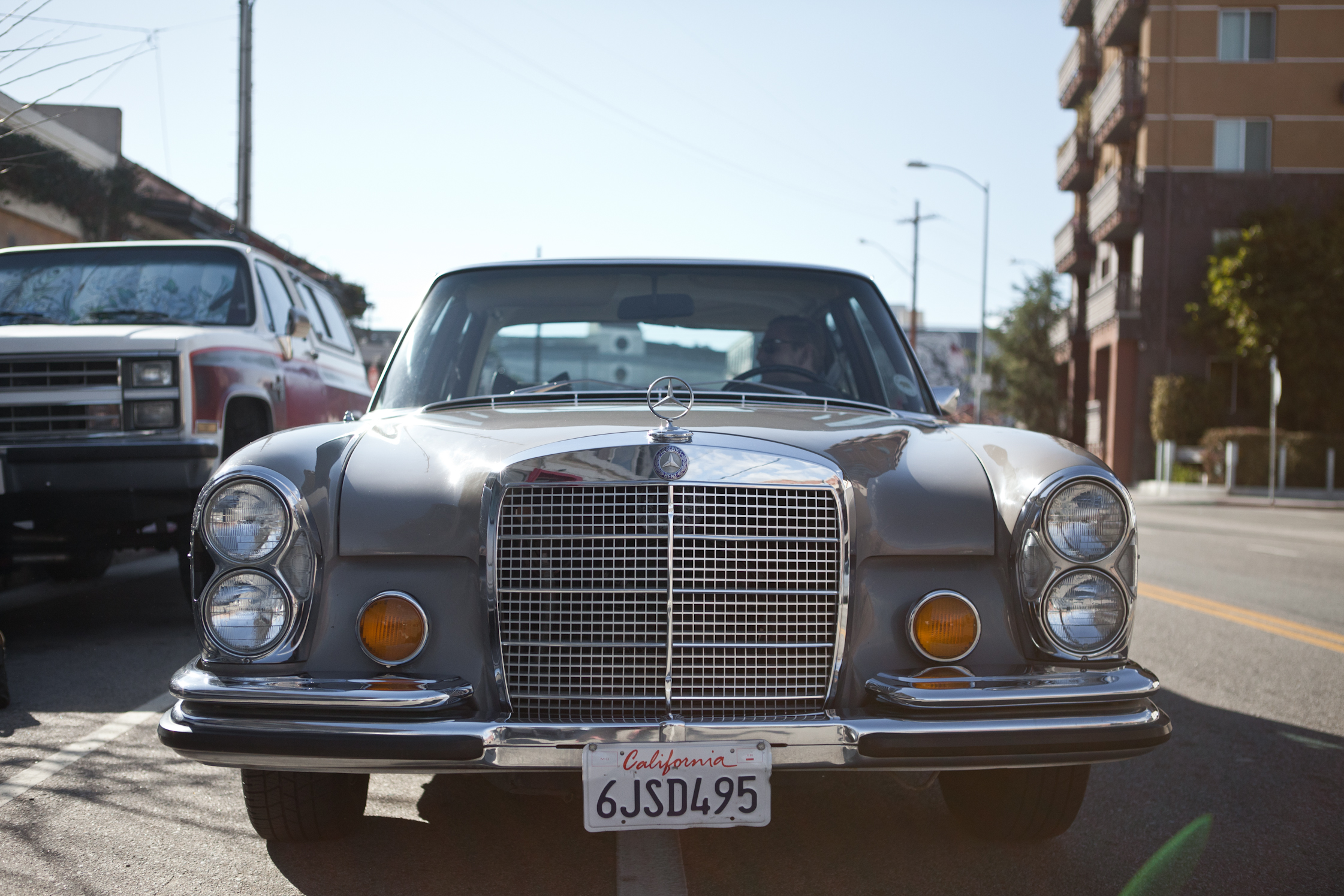
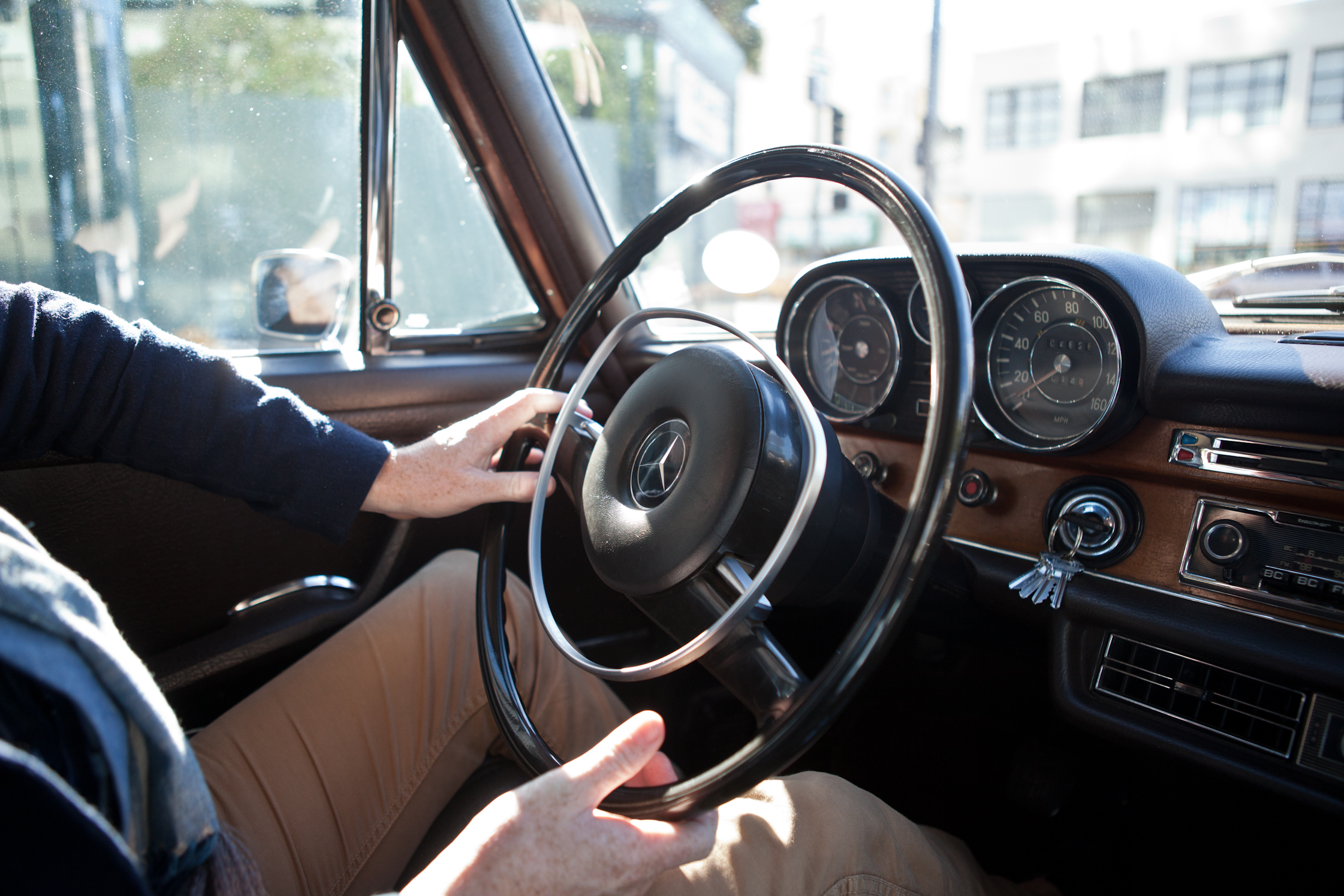
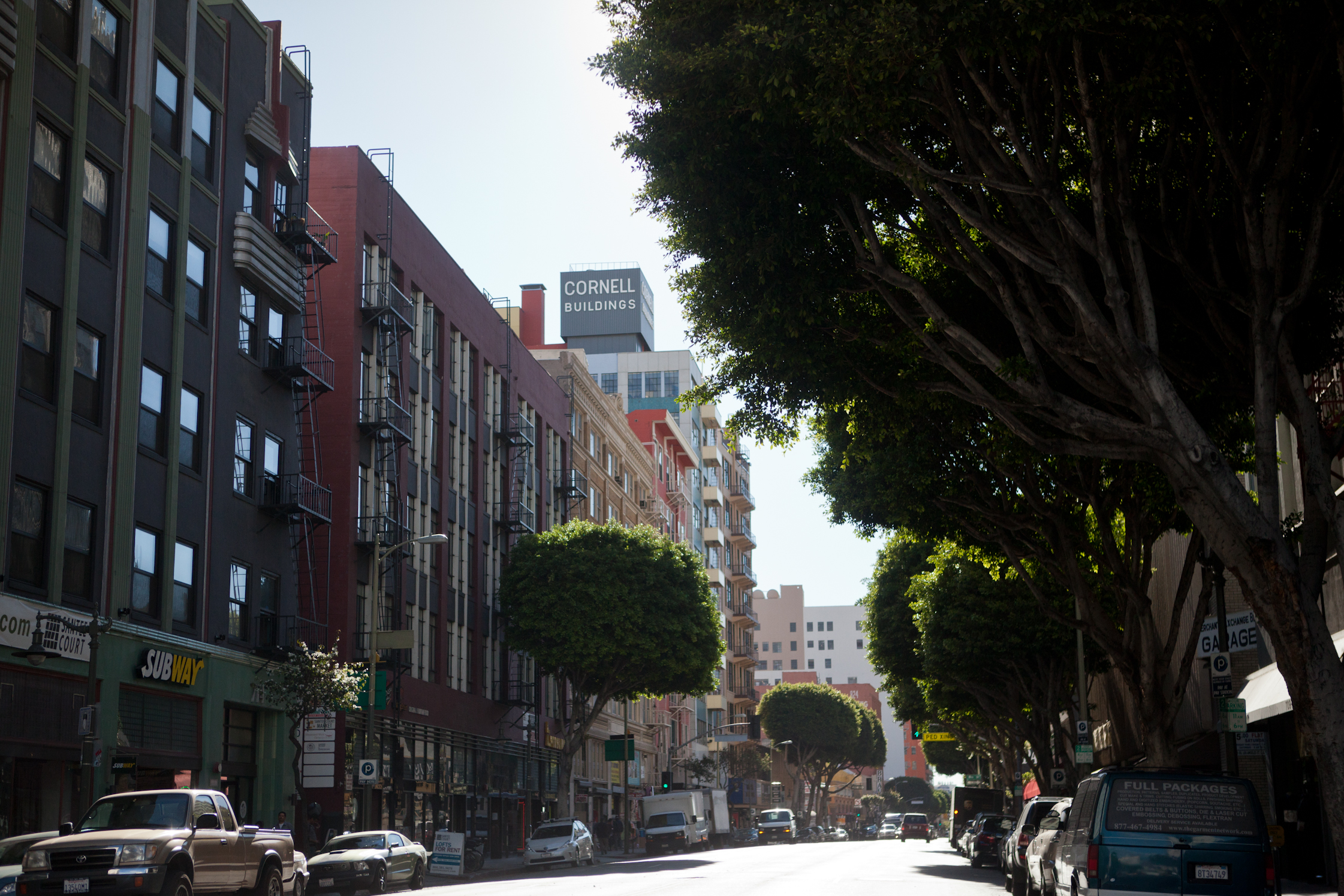
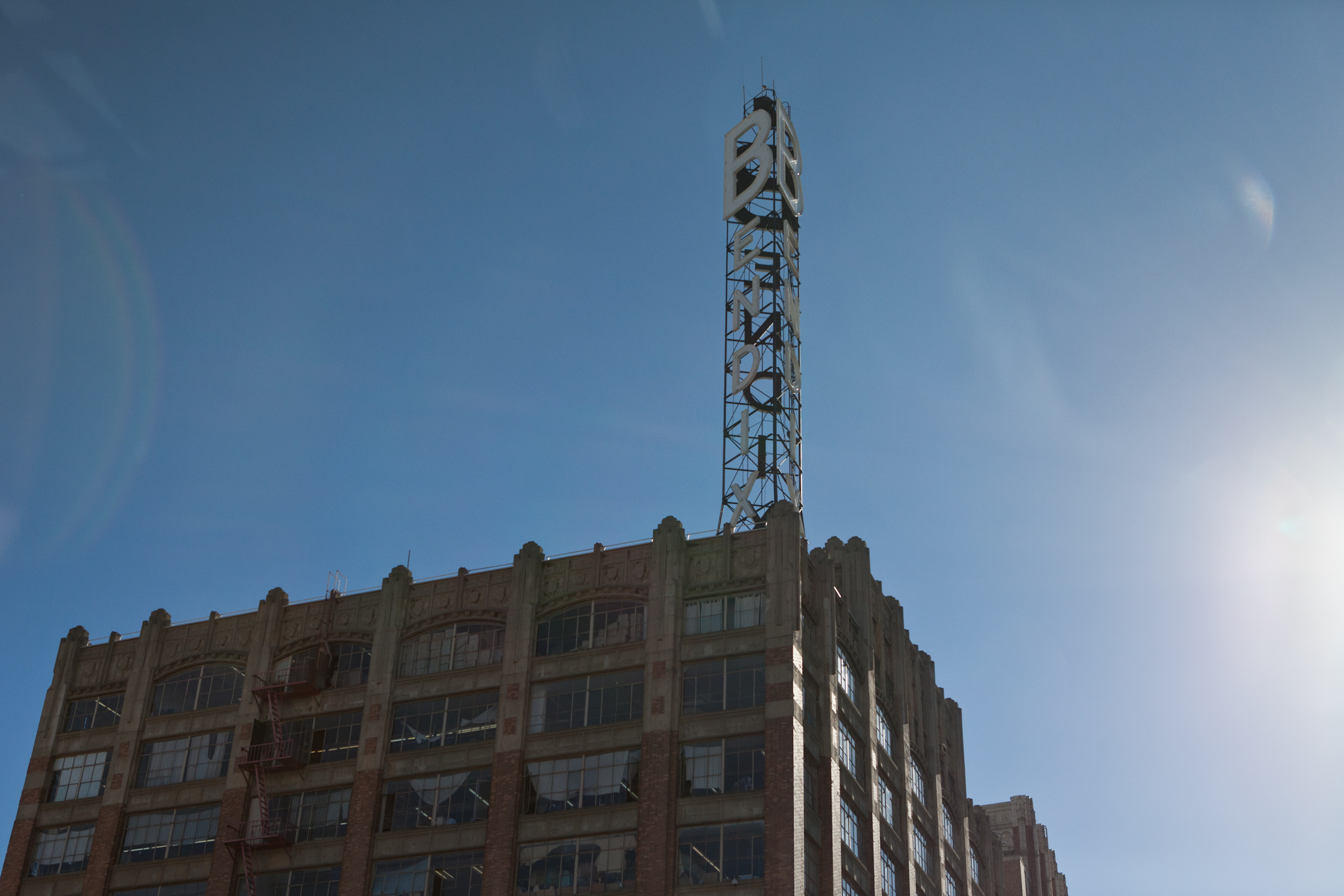
-
When you started, what was your vision? Did you imagine it would end up here with all those different branches?
I don’t know how much I thought about it. It just kind of progressed from the initial idea. We’re still on a very infant level in terms of where we want to go. For Apolis, we want to be a scaled global brand. The larger we can build our footprint, the more buying power we’ll have and the more projects we’ll be able to develop. Our biggest project is in Bangladesh, north of Dhaka, working with a small rural cooperative. With them we make those kind of farmers’ market jute bags. We always look at the materials that are accessible and the skills set we have available at each location. You don’t want to make things that are out of your capacity so we usually keep it simple. These are individual social development projects and we treat those projects as commodities to create as much impact as possible. Our distribution footprint is contingent on how we can scale that even more.
-
What triggered your interest in garments and clothing style?
I surf a lot and that was what led to my kind of entrée into the garment and textile world. I was surfing competitively since I was really young so I traveled to Europe and lived in San Sebastian for a year. In the Basque country there’s a cool brand called Loreak Mendian with a retro surf style. A friend of mine, who used to work with Carthartt, opened up a boutique in Spain where they had this artist doing a window installation and all sorts of different things going on. I never knew something like that existed. Intersection of surf, fashion and art. This place changed my perspective of going into a specialist store especially in sports clothes where there’s no craft and the look is horrible.
Noon Design Studio
-
What’s one of the classic sports brands that you think managed to overcome the stereotypical look?
I love Patagonia. The guy who did all the production for it has property where me and my brother grew up surfing in Santa Barbara. The scenery there is like California 100 years ago – sparsely built with beautiful hills. It’s really inspiring to make products that you can pass down to next generations. It’s like historical fashion. Some of the members of the Hermes family live in Santa Barbara and they’re very adamant in having their products made in Paris. I like that unwavering philosophy.
We’ve had the company for ten years and Alchemy Works for around two years. My brother Shea does all the business and has a kind of CEO role, my wife Lindsay is managing Alchemy Works and I do everything design-related.
Topanga Beach

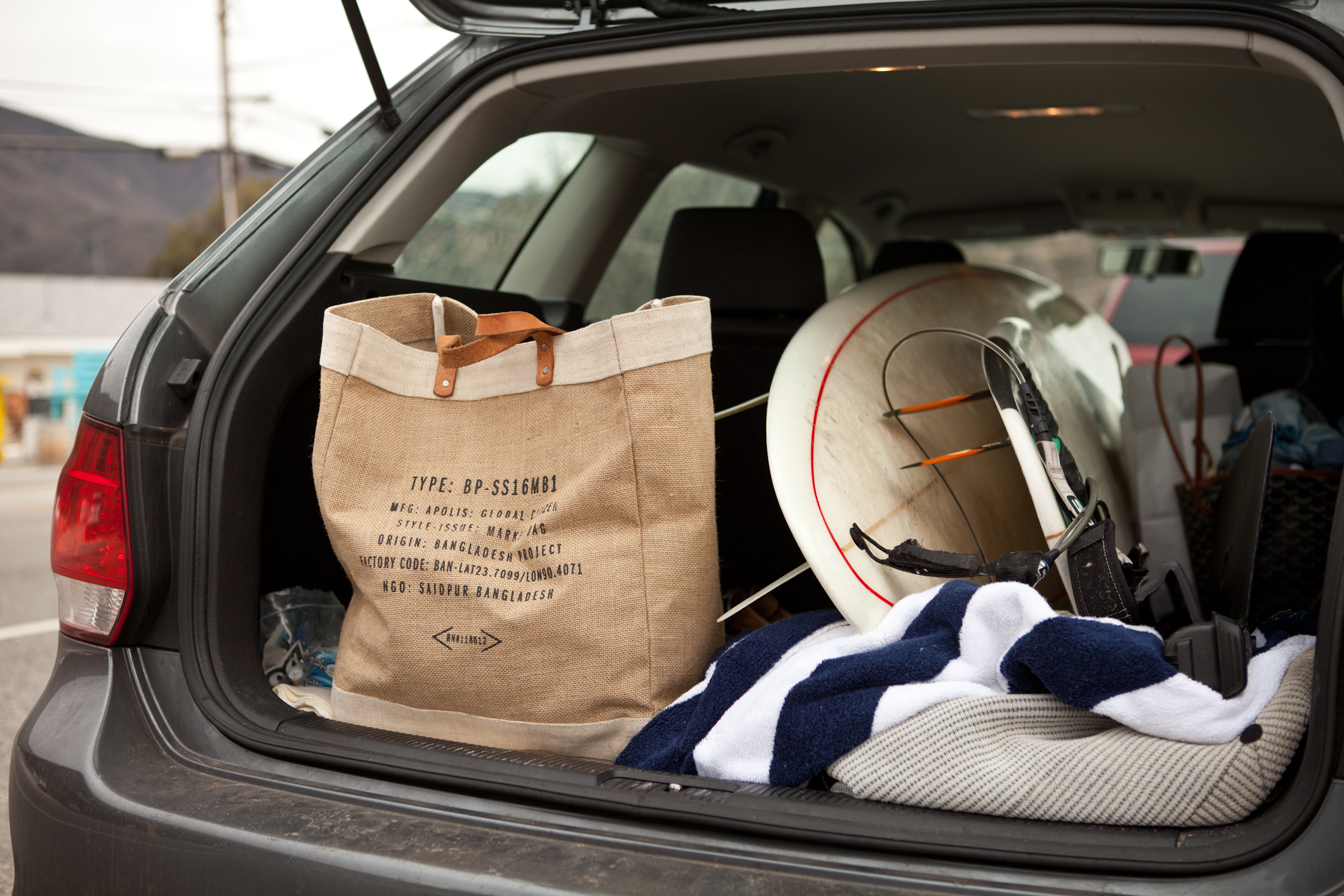
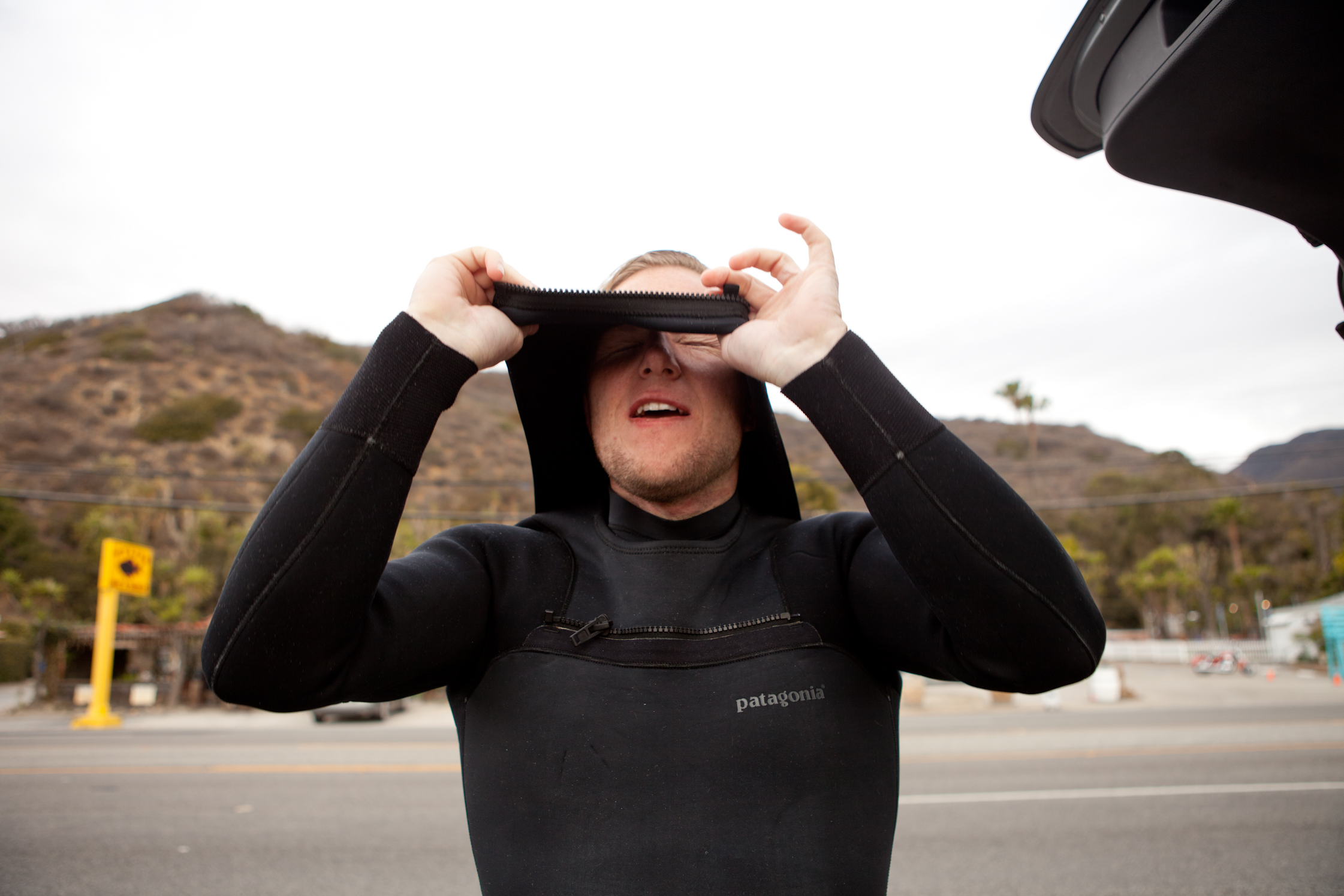
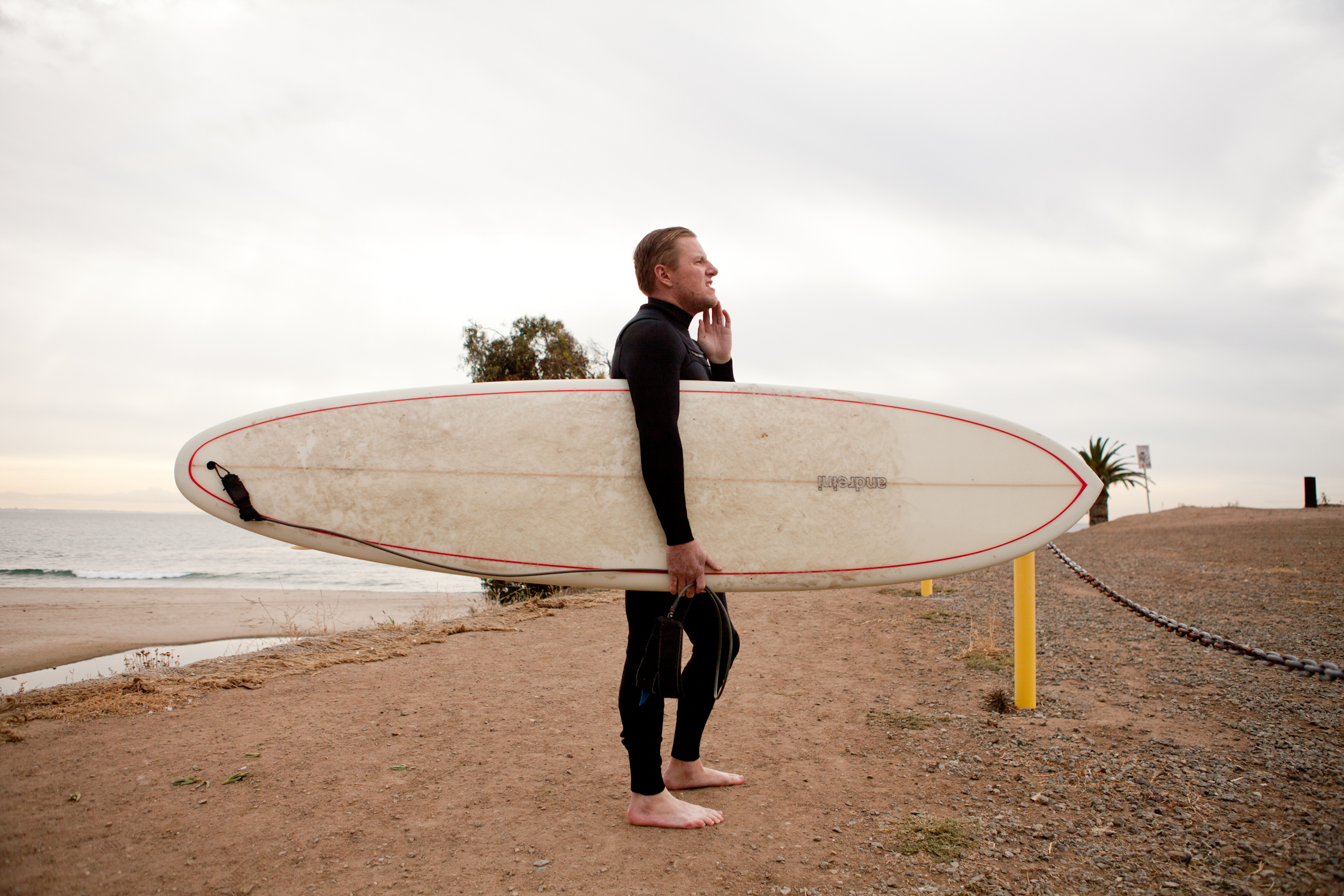
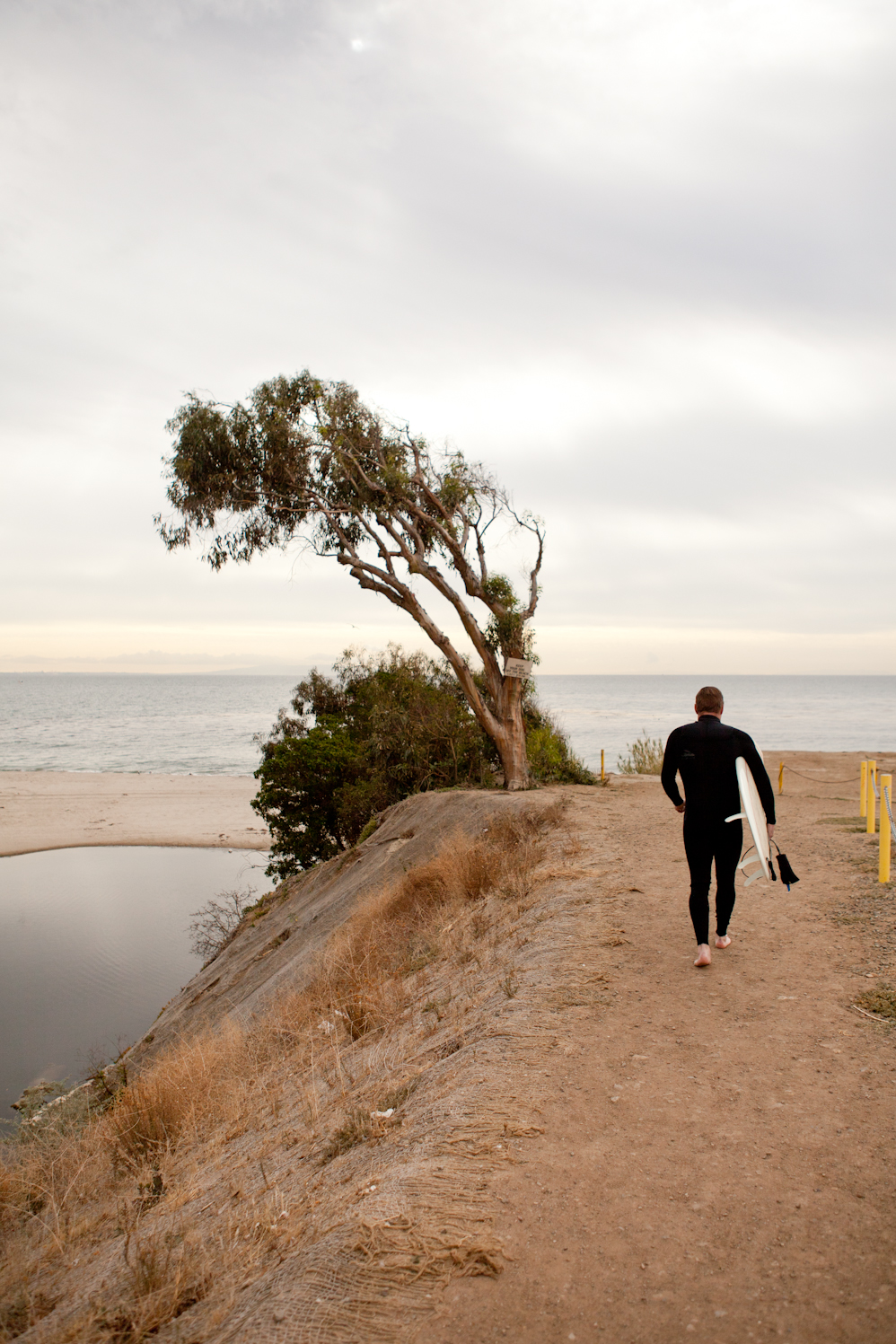
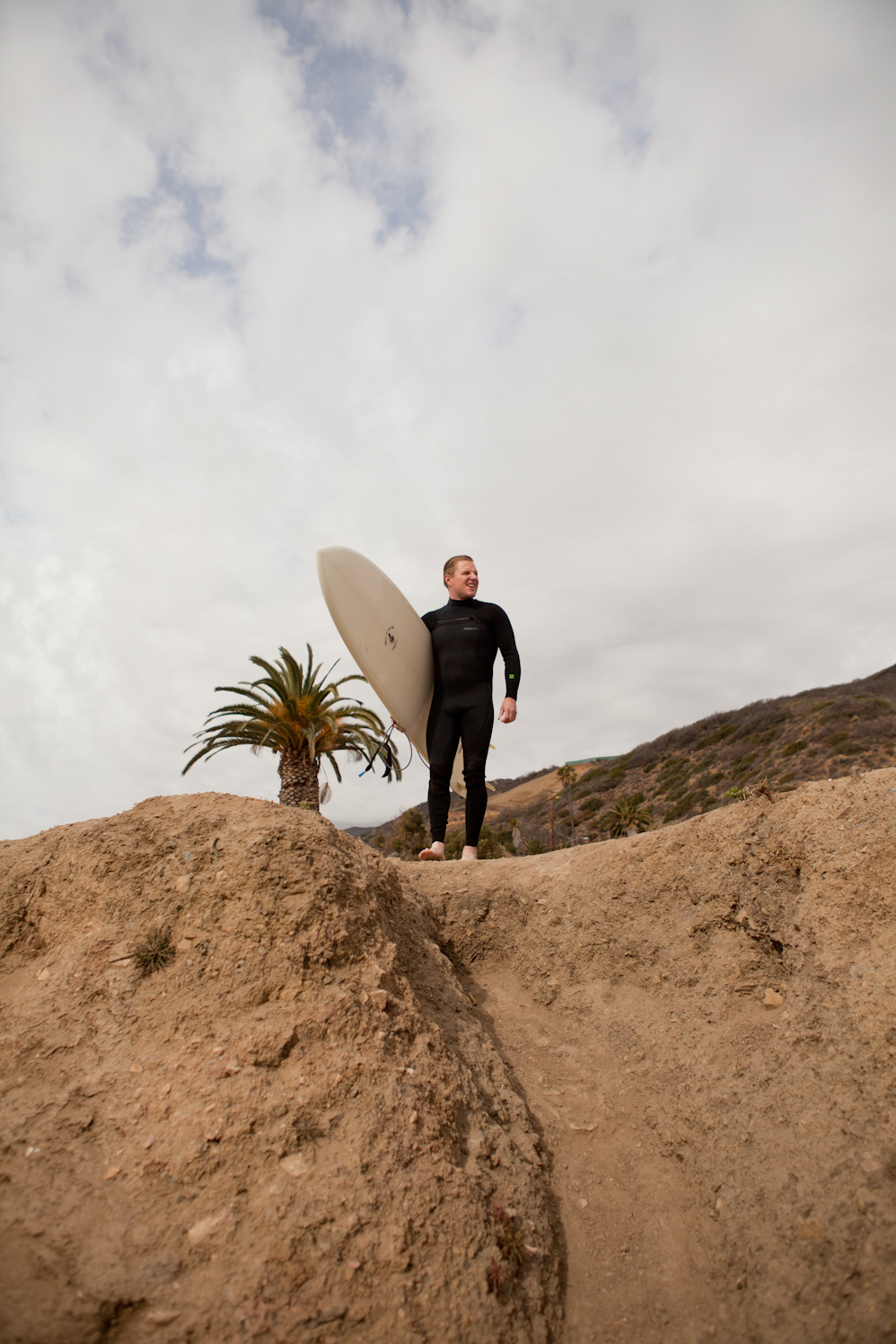
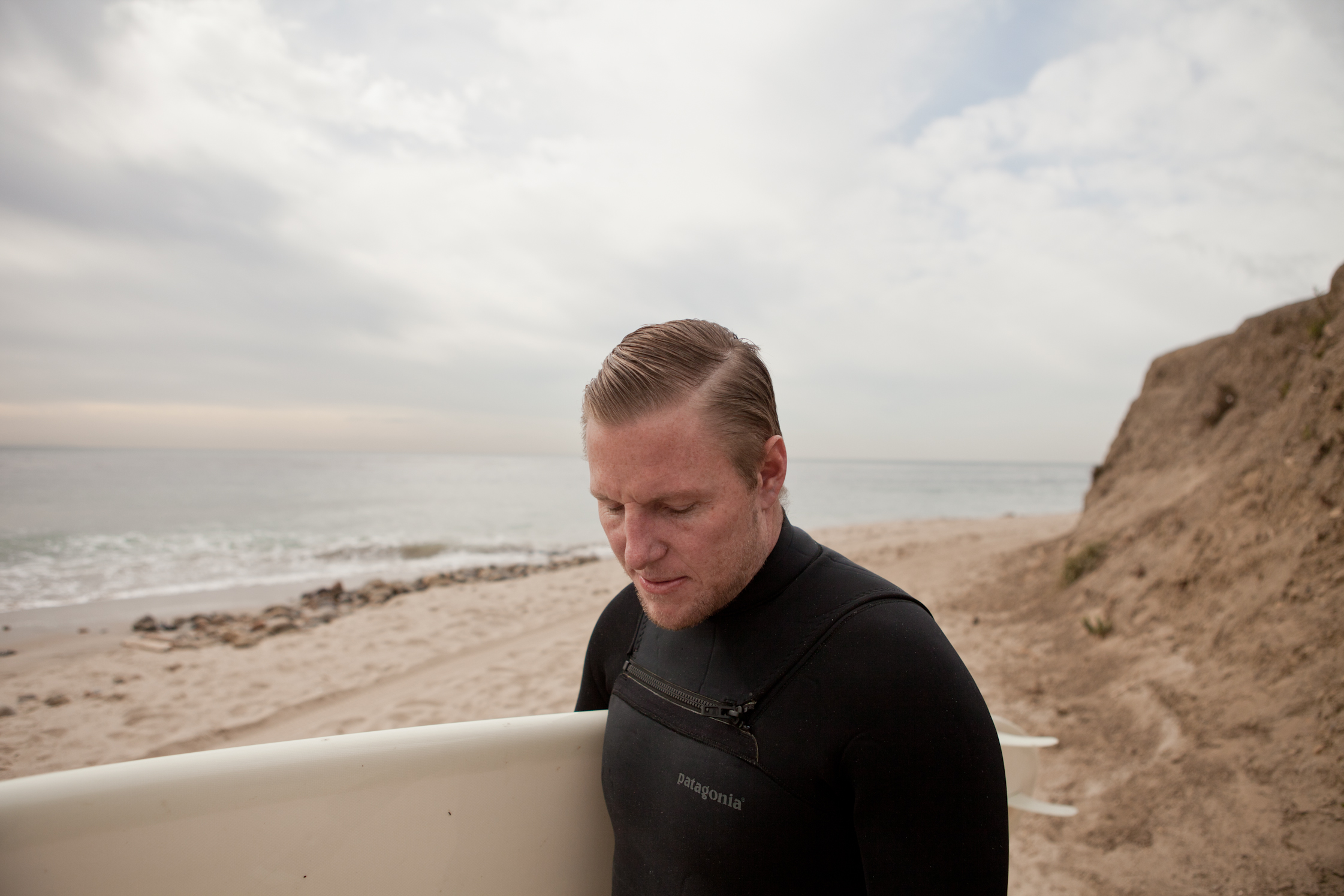
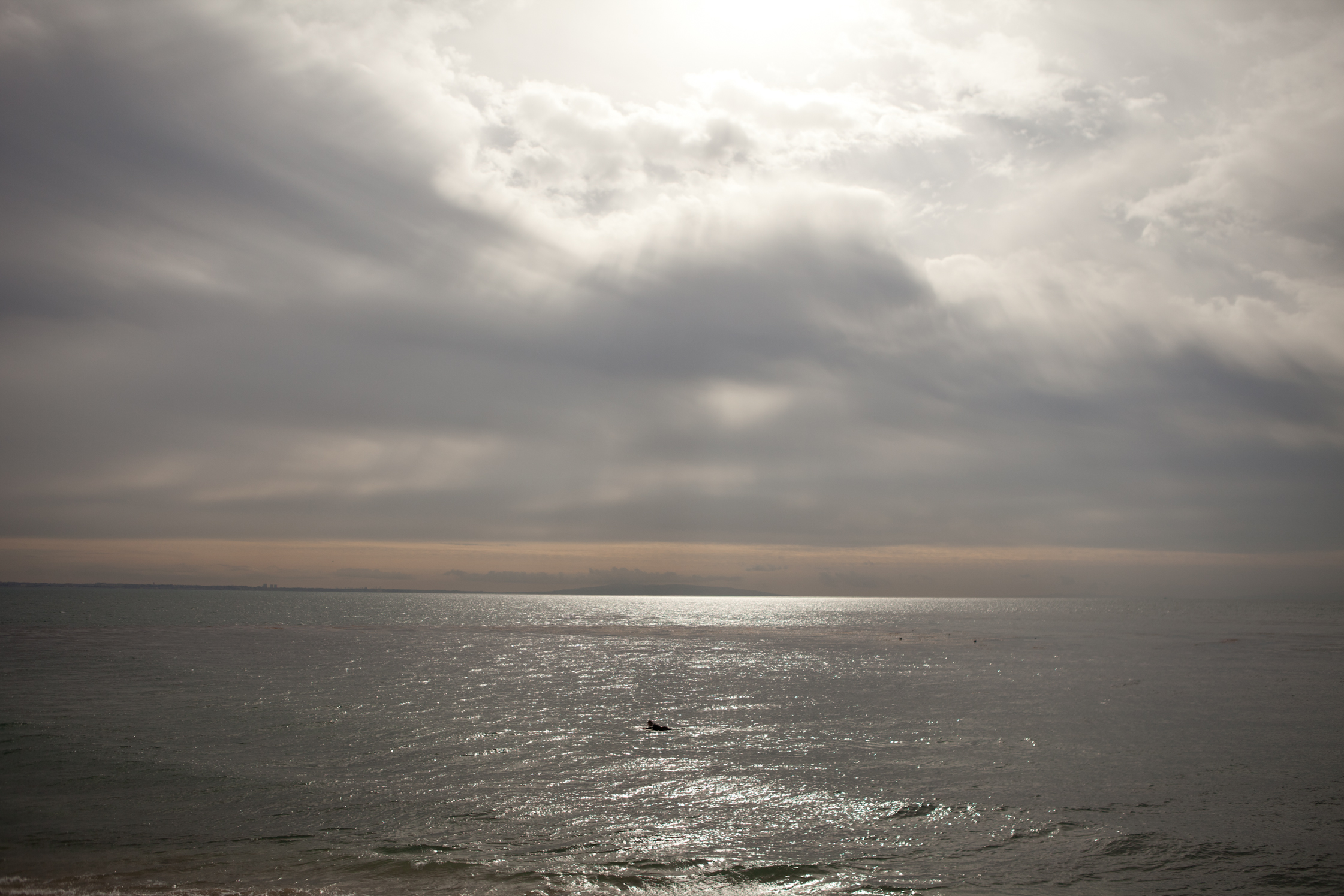
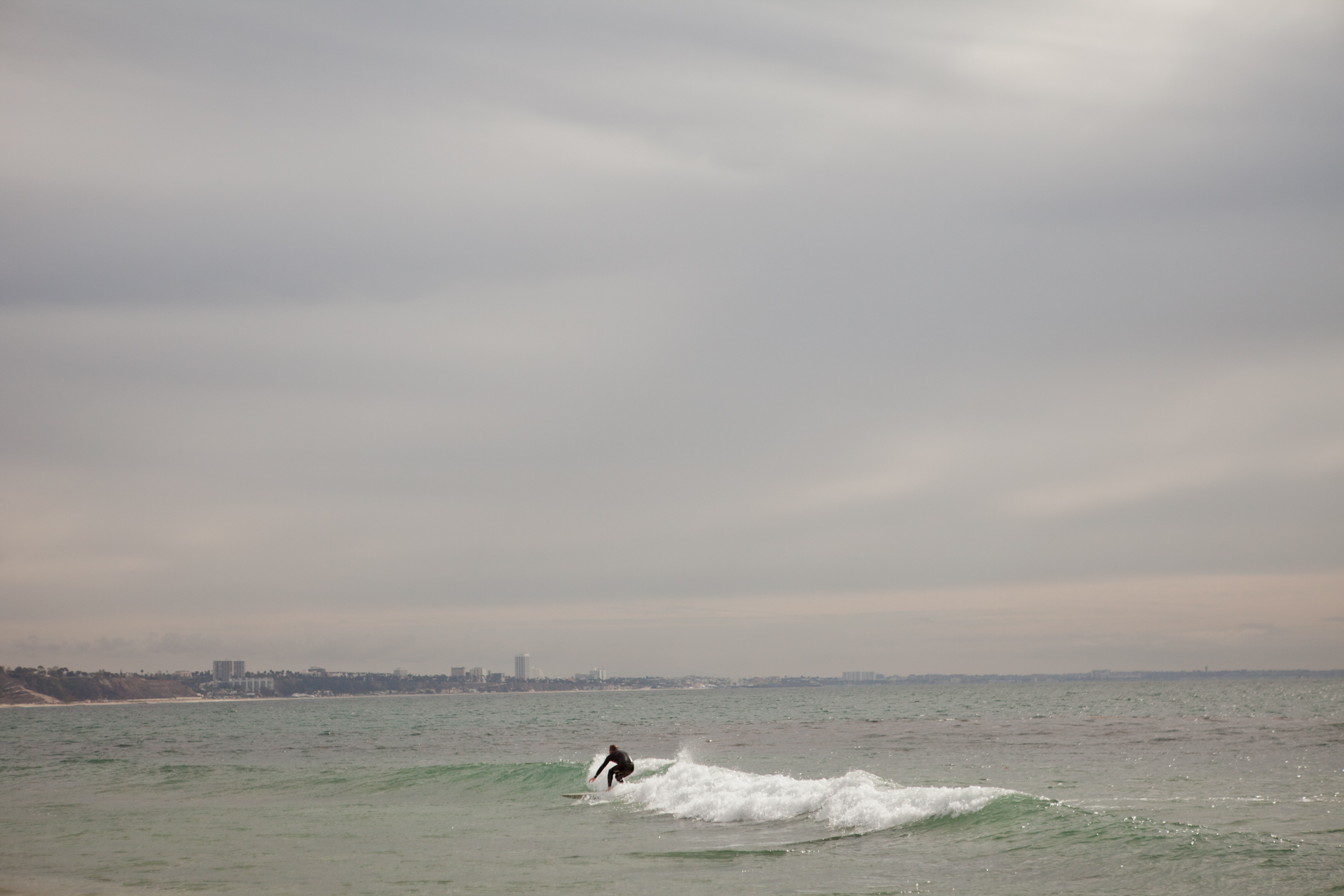
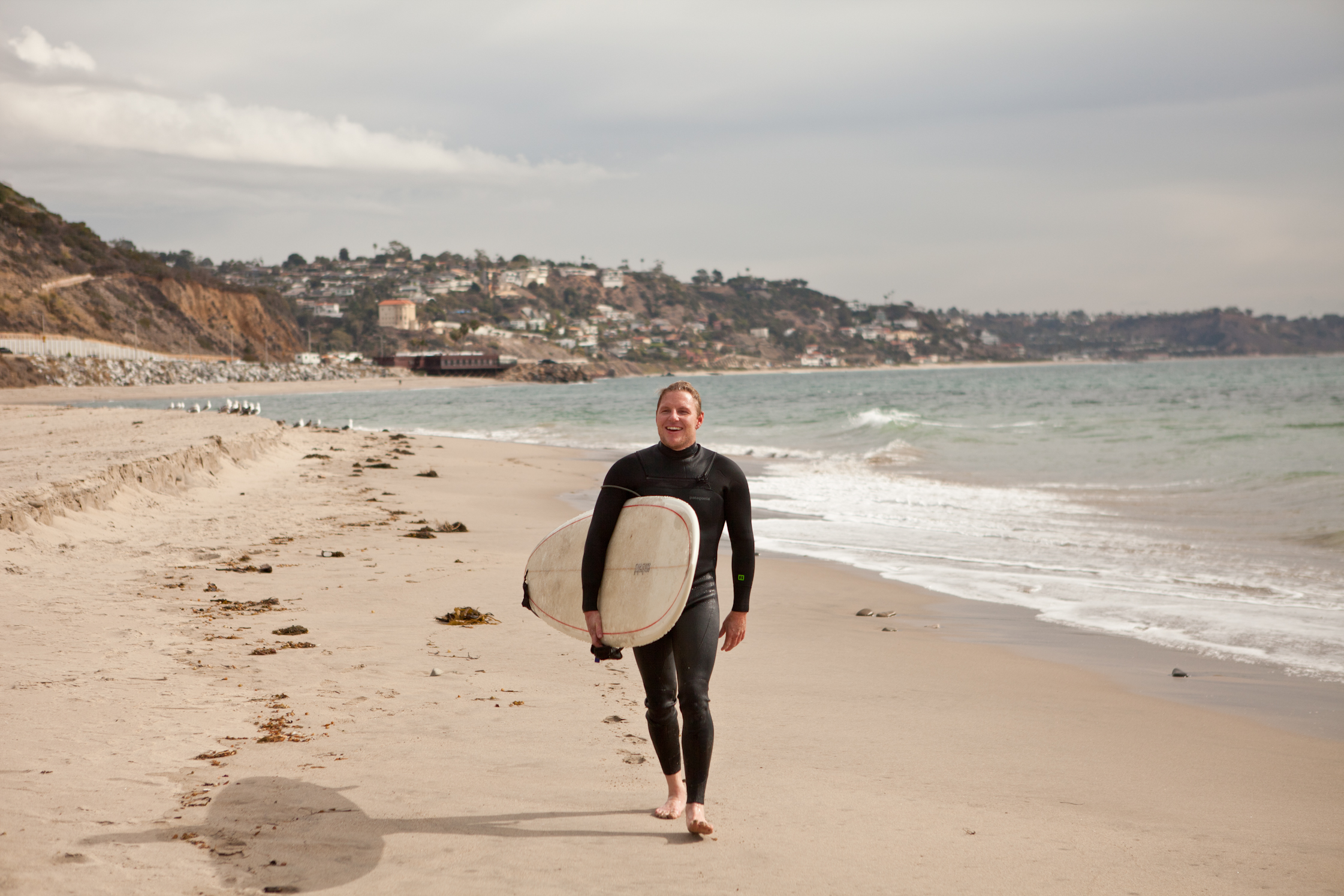
-
What is it like working with family?
It’s great and hard at the same time. There’s a unique balance but it can also be challenging. When there’s an overlap in partnership it’s hard. My brother executes all the initiatives. Because we’re family we have to get along. We don’t always see eye to eye. It’s kind of synergistic and we always work together on each project.
-
And what about the neighborhood you’re based in? I get the sense that it’s kind of like an expansion of your family.
This neighborhood is certainly a big part of our lifestyle and workspace. It’s very friendly with a strong sense of community. I think it’s an upcoming area that will definitely evolve into a destination retail space. A lot of new things are popping up. This neighborhood is becoming a big checklist and we’ve been passionate about building it and helping out in its development. Everyone is speculating that this is going to be the LA version of the Meatpacking District.
